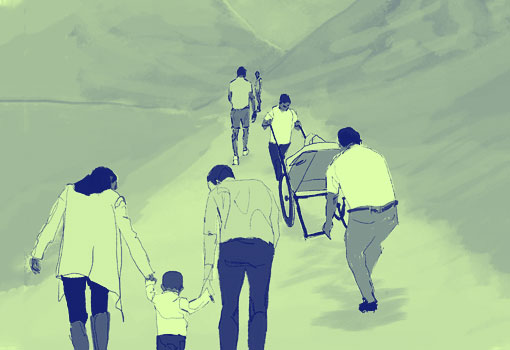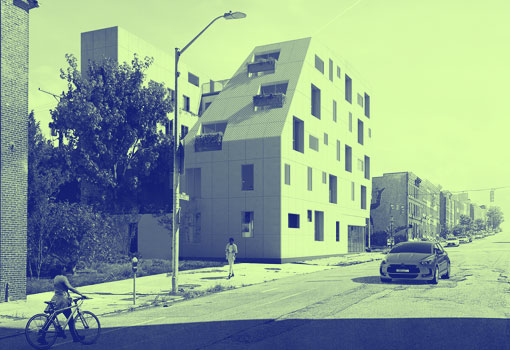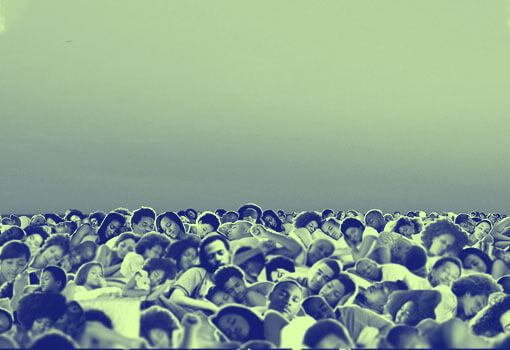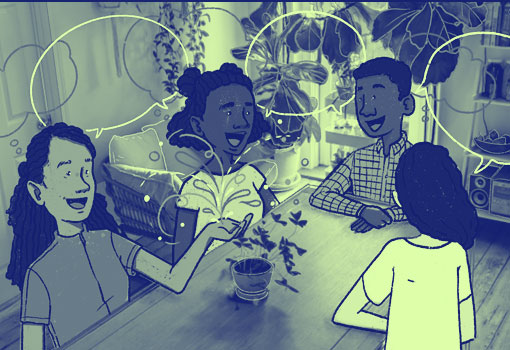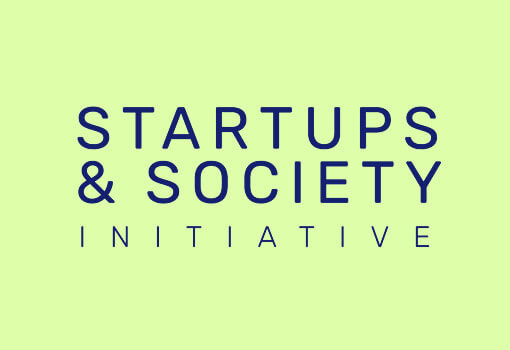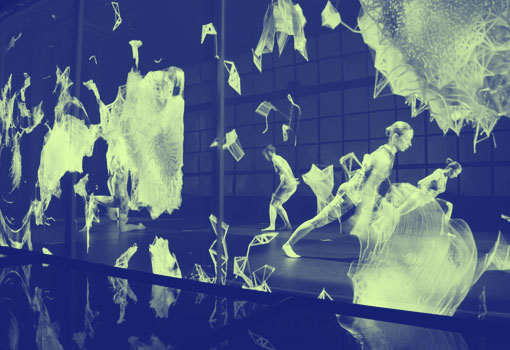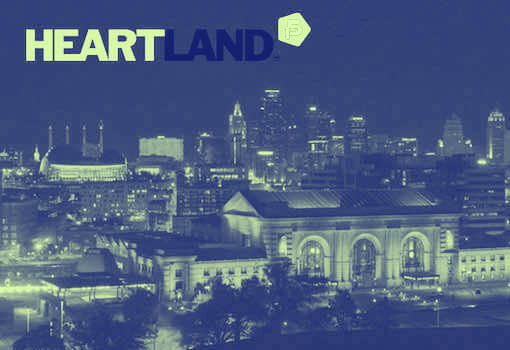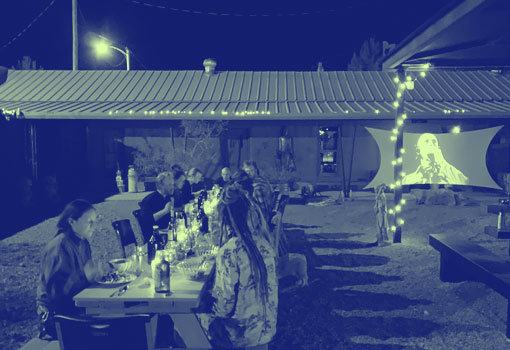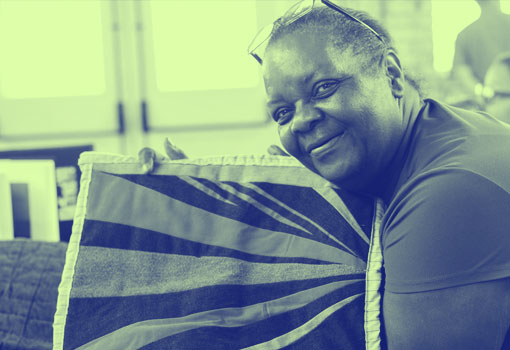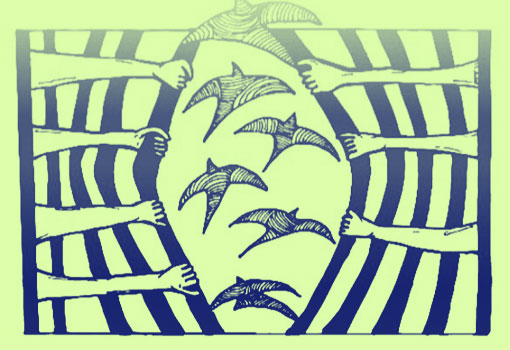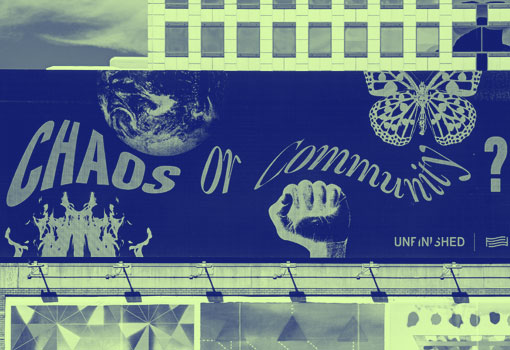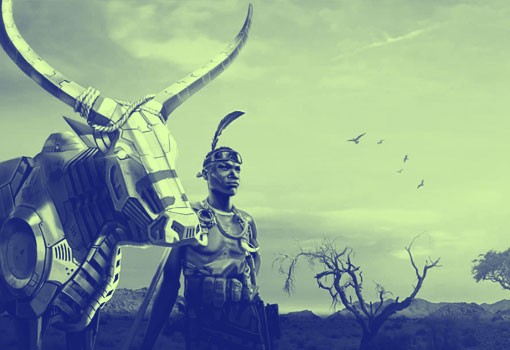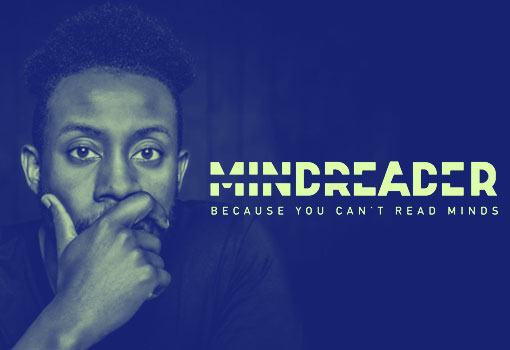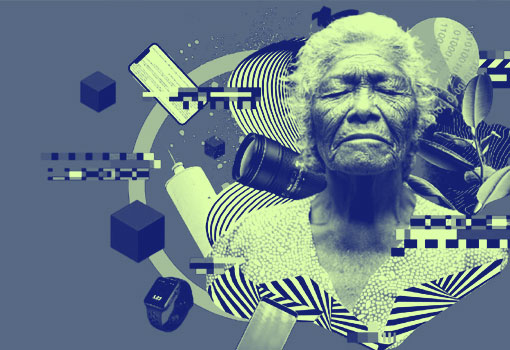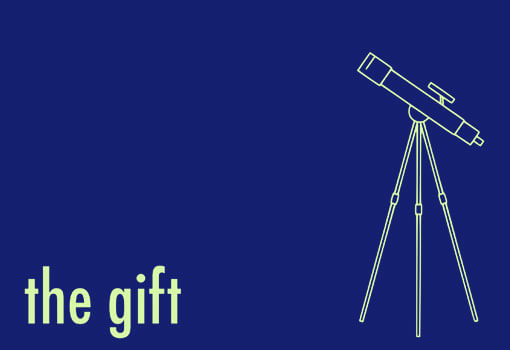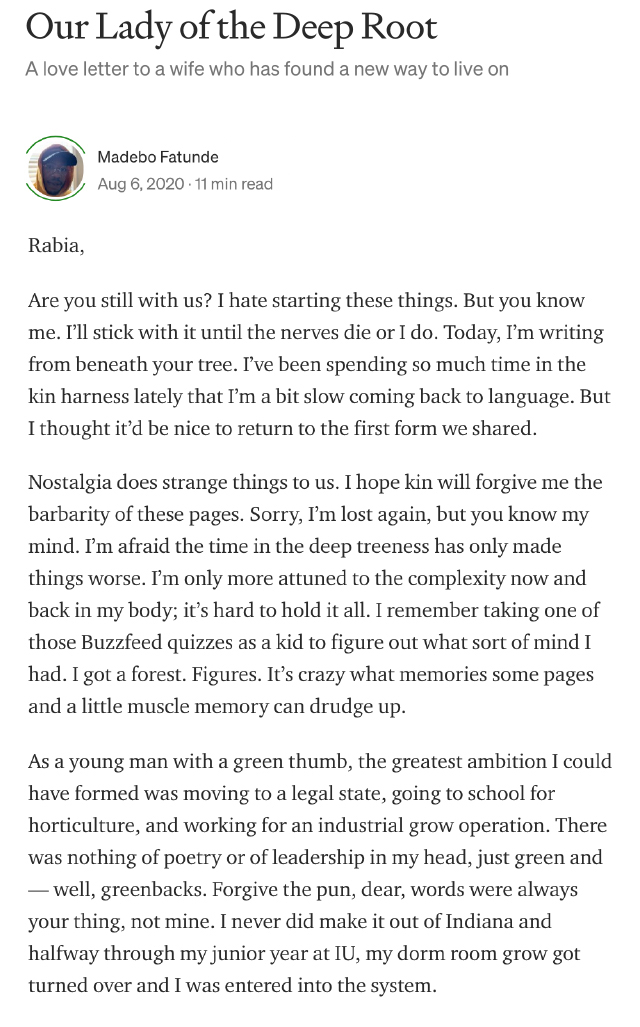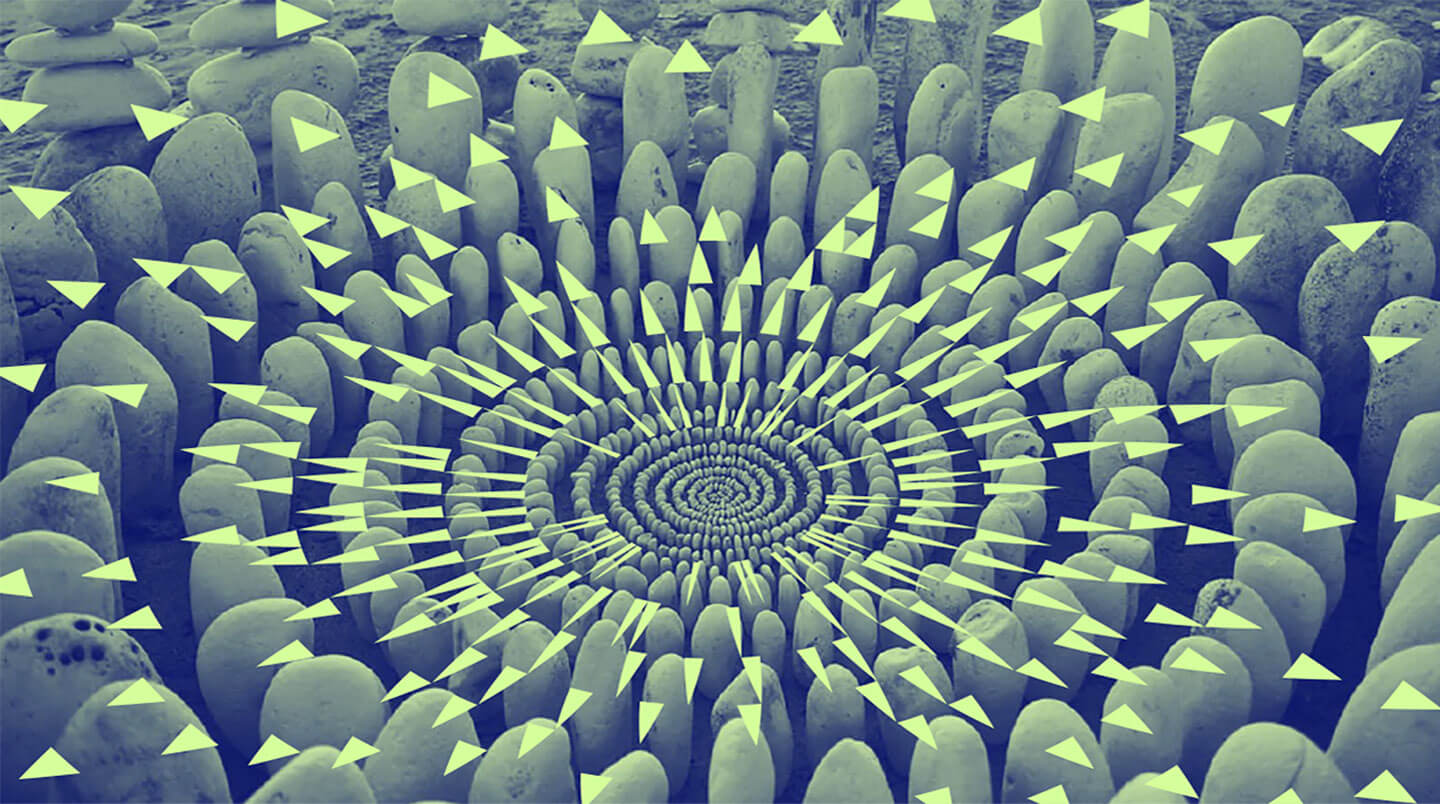2020
Annual
Report

As a young organization having only been founded in the summer of 2019, the Guild of Future Architects (GoFA) began 2020 with a clear vision:
To establish its century-long role as a critical animator of enlightened cultural, social, economic, and political systems.
When the new year marking a new decade arrived, our team enthusiastically set out to support future architects in building Shared Futures aimed at raising humanity’s collective consciousness for radical transformation, so we can usher in a regenerative era of equitable societies bound by shared values.
Little did we know that our work was about to get much harder and more rewarding with increasing urgency as the COVID pandemic exposed challenging realities that highlight the very reasons why GoFA exists.
Reflections from our Founder Sharon Chang and Executive Director Kamal Sinclair.
Indeed. January and February saw many exciting programs take shape. We kicked off the year with a Futurist Writers’ Room performance at the 2020 Sundance Film Festival, bringing our nascent speculative narrative offering to seasoned storytellers for deep engagement. In early February, we began our collaboration with the Octavia Butler legacy in partnership with New York Live Arts by gathering a group of renowned Black artists to articulate Black insights and foresight through five provocative projects. We ended the month on an incredible high from the successes of our friends in the For Freedoms Shared Future, who produced the For Freedoms Congress in Los Angeles the weekend leading up to Super Tuesday of the U.S. primary elections. Those of us fortunate enough to attend felt a sense of rejuvenation, solidarity, and clarity of purpose for 2020.
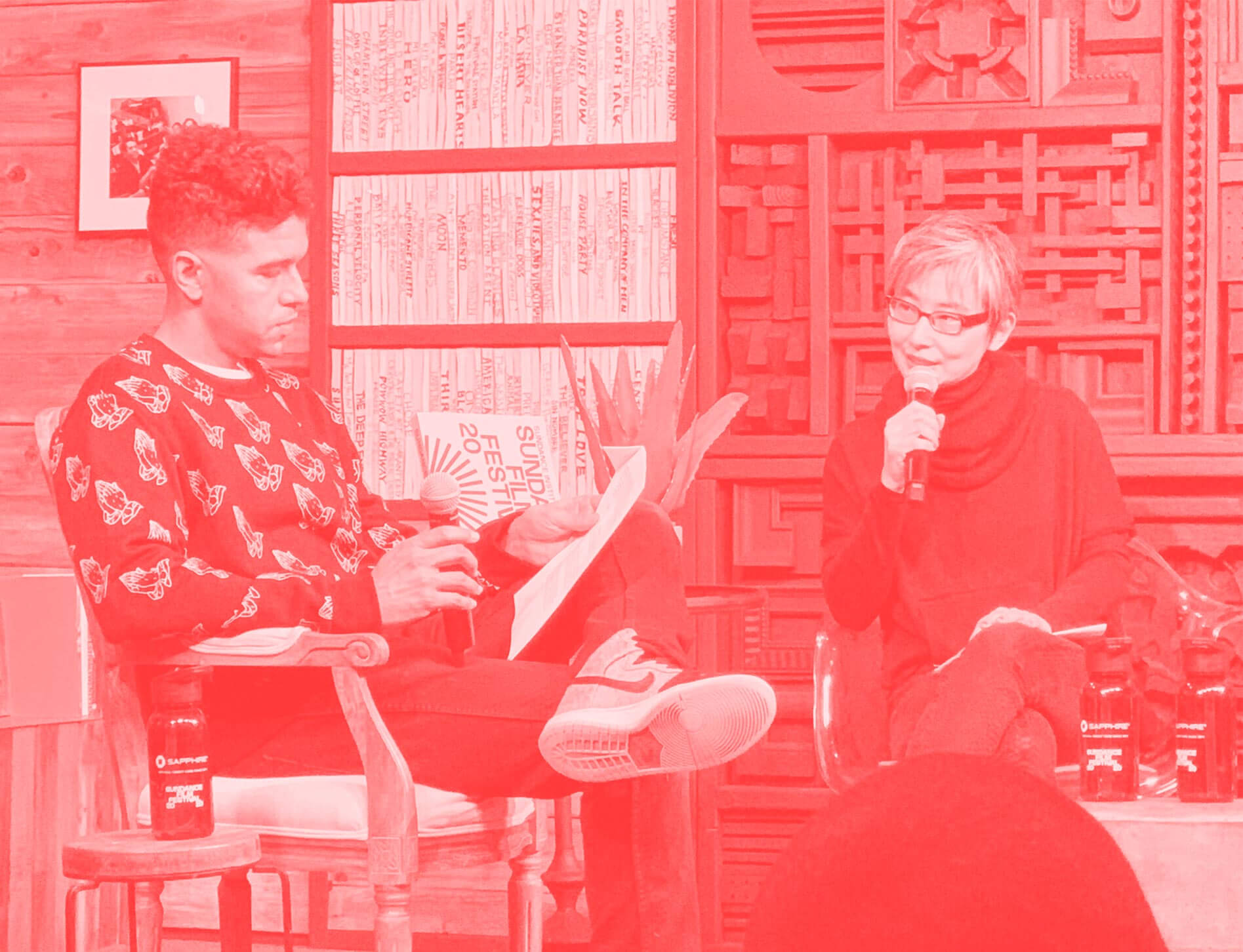
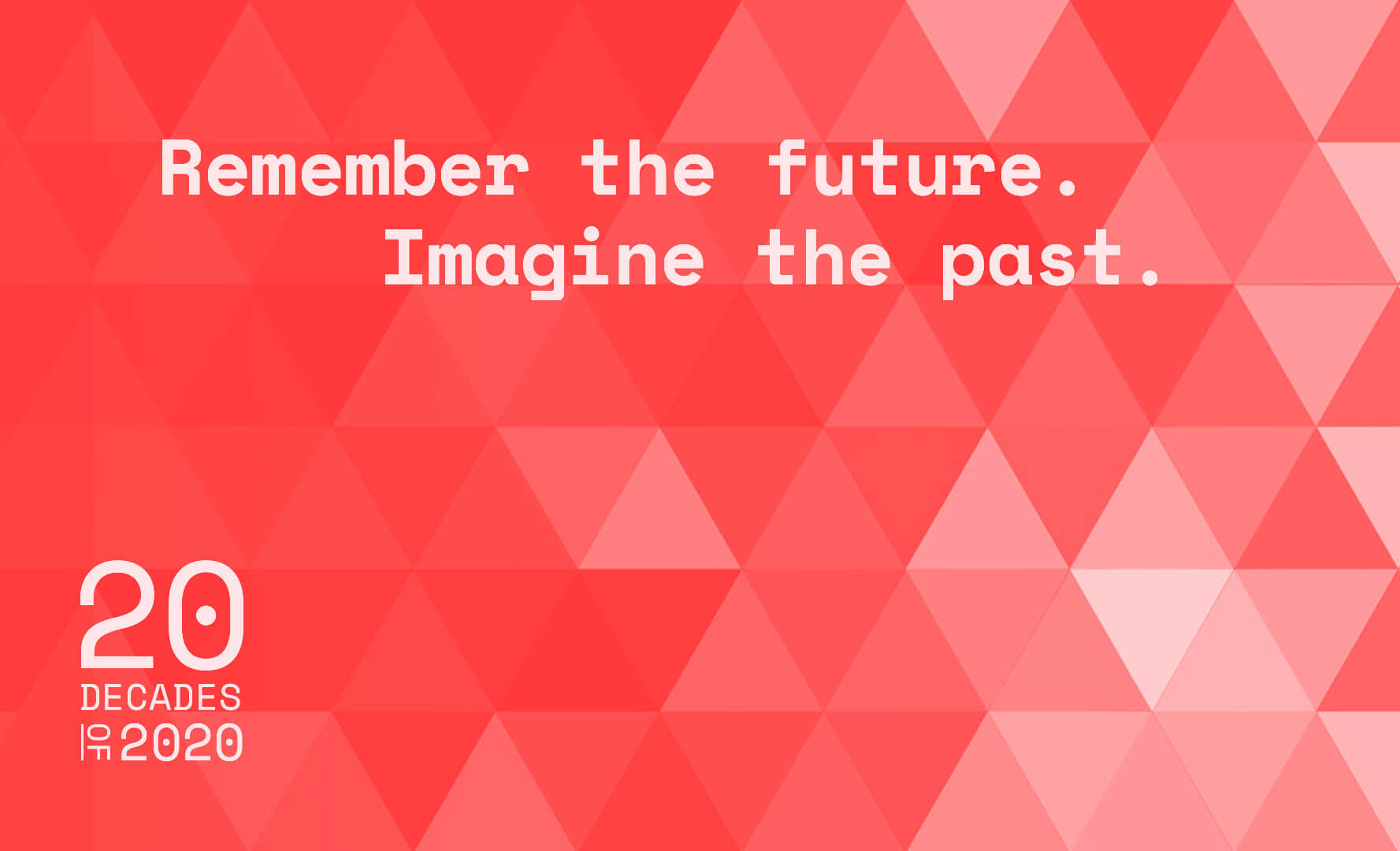
Then, the pandemic struck in full force. I recall carrying that high back to New York and immediately having to cancel my trip to Abu Dhabi. Within a week, all of us were scrambling to figure out how to adjust to new quarantine measures. Amidst escalating COVID-19 cases and a rapidly rising number of deaths around the world, we convened our members on Zoom to process this new reality together. The result was GoFA’s member-led Pandemic Response Taskforce and our landmark program 20 Decades of 2020. In the following months, we created community, unearthed important design principles, and envisioned new futures through radical imagination, all with the goal of moving away from the myriad of broken systems that have been blatantly exposed in a year of monumental upheaval, trauma, and tragedy.
Running in parallel, we swiftly moved all planned programming to the digital space — most notably, our inaugural Shared Future Incubator which supported four incredible collectives with prototyping grants, learning programs, and advisory sessions. I was sad to lose the magic of in-person gathering, but even with Zoom-bound constraints, we delivered a very high-touch experience that helped all participants to advance their high-impact work.
Sharon:Not only that; through this experience, we also fine-tuned our understanding of Shared Futures. We came into the year with a series of hypotheses and definitions that needed experimentation and validation. By working closely with our first cohort of Shared Future participants, we were able to distill the future architecture pedagogy to five anchor Learning Programs.
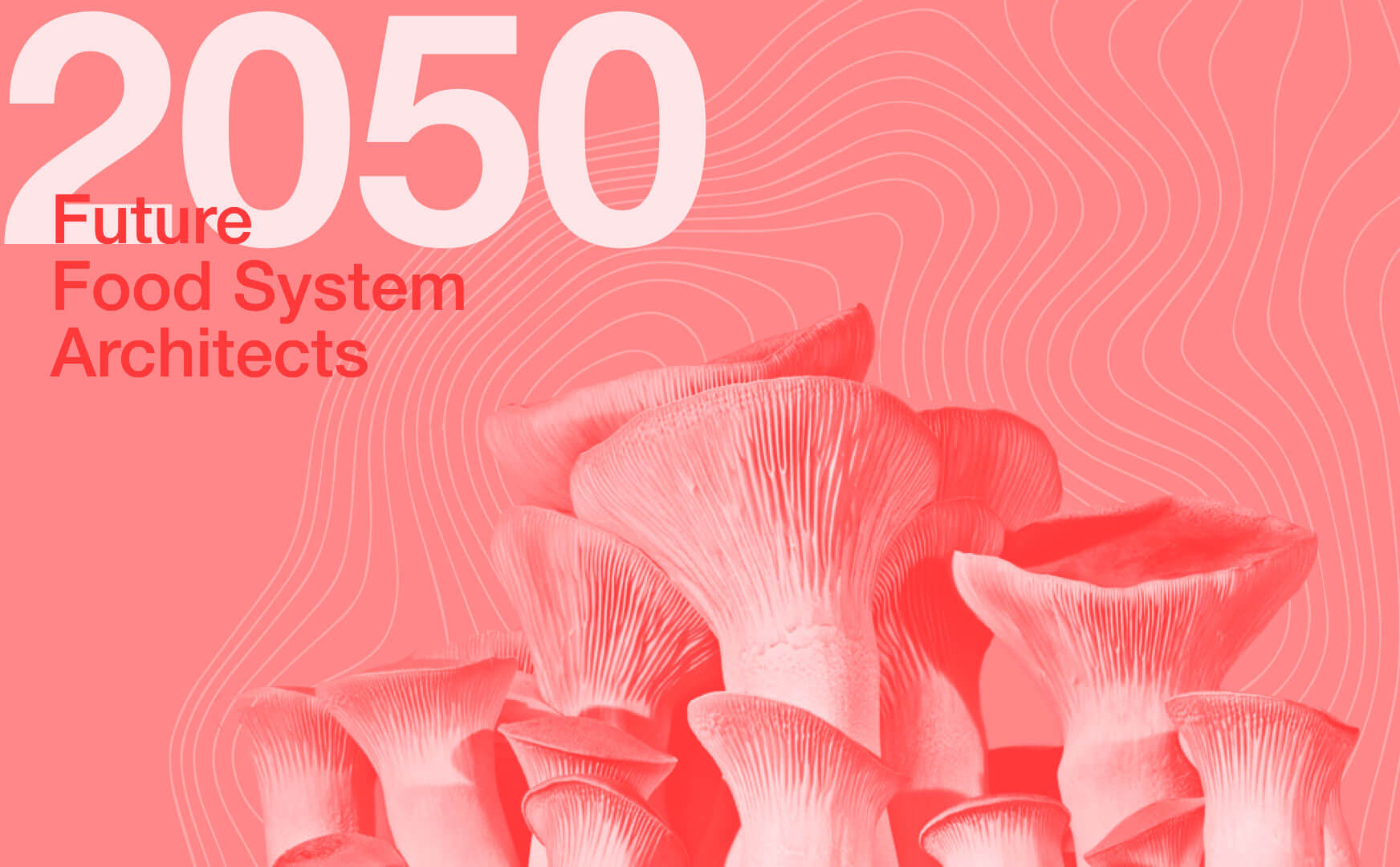
Don’t forget our incredible partnerships with the Doris Duke Foundation for Islamic Art’s Building Bridges Program and Rockefeller Foundation’s Food System Vision Prize Accelerator. Both helped to further codify our Learning Programs in preparation for launching them as stand-alone offerings in 2021. Besides, I was delighted to see our members contribute their knowledge and expertise as facilitators and advisors in these programs. These projects not only created clear and distinct value for our partner organizations, but also illustrated the need for more future architects to join our efforts in bringing more justice, equity, and inclusion to systems change.
Sharon:Speaking of justice, equity, and inclusion, I recognize the importance of doubling down on racial justice and gender equality as we tackle the seemingly insurmountable challenge to combat white supremacy embedded in patriarchal power structures. Without removing these barriers of structural inequality, we won’t be able to architect a more beautiful future for more people. Yet GoFA’s longer-term mission is to unlock the full human potential for collective wellbeing and shared prosperity. As we work hard to dismantle oppressive systems created with ill intentions, we have to simultaneously elevate our understanding of what is possible by making the invisible visible and the intangible tangible. How might we realize our long-term vision while tending to short-term needs?
We will continue to do both, and the answer will emerge from our community’s collective wisdom. When we arrived at the end of the most defining year of a generation, GoFA members spent time reflecting on the lessons learned and imaginations catalyzed in 2020. Our inquiry for 2021 will focus on Healing and Regeneration: What will make us more resilient to fear-based narratives — designed to divide us, activate our worst imaginations, and cause us to forget our better selves — so we can do the work of building bridges?
Sharon:And while we diligently build these bridges through healing and regeneration, we will dream up the blueprints for radically different systems that honor our interdependence. More importantly, we will work on helping people see and believe that the power of our potential is greater than the force of our history because we need everyone’s imagination and participation to find our interconnected destiny.
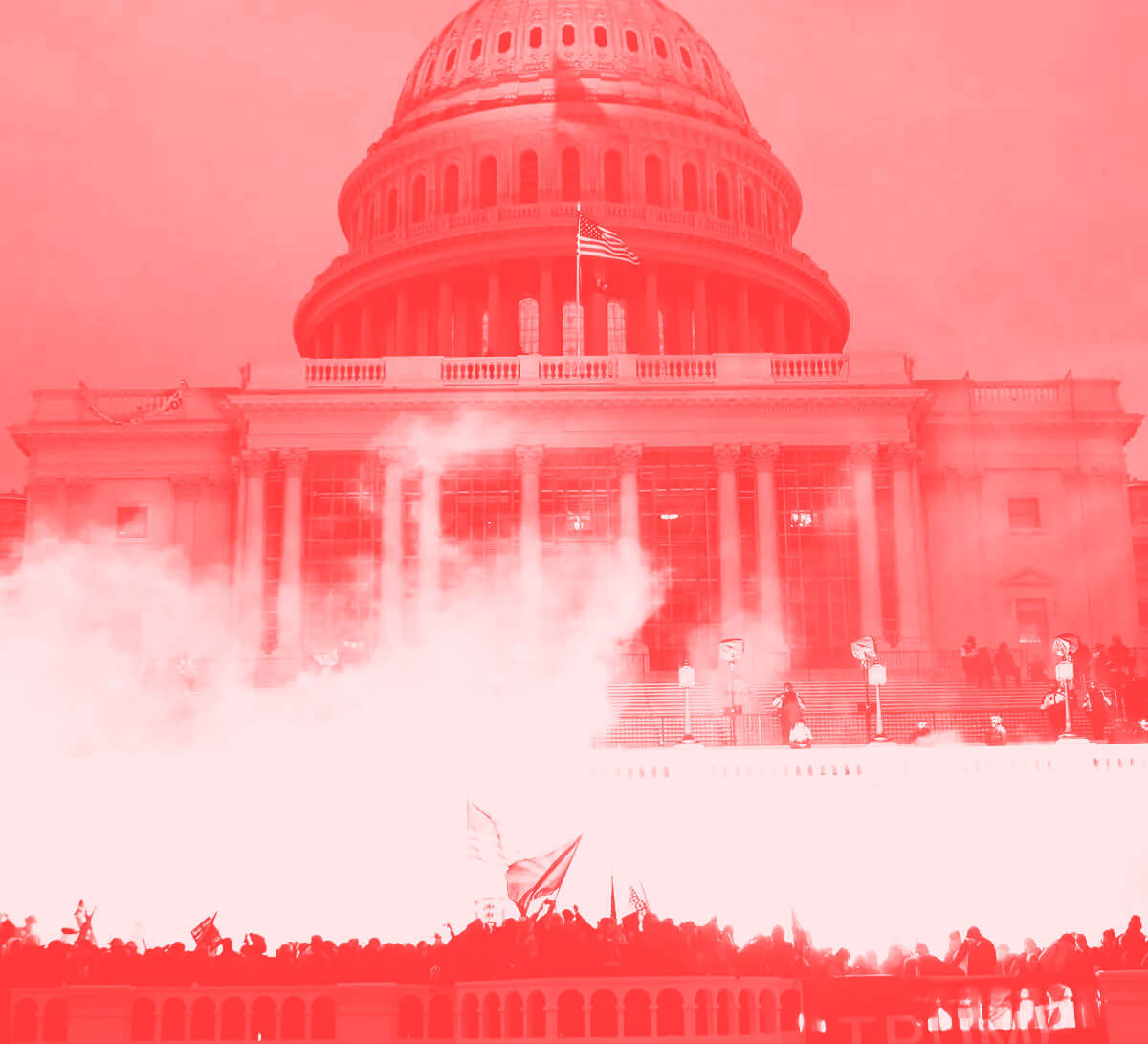
In 2020, GoFA facilitated 1000 hours of creative and strategic foresight co-created via 50 Futurist Writers’ Room (FWR), Story Rule Money (SRM), and Community Model Canvas (CMC) sessions within an ecosystem of 1000+ future architects and other visionary participants.
With 171 members representing racial, gender, economic, geographic, cultural and sectoral diversity, we are growing at the speed of trust to advance the practice of future architecture. As of December 31, 2020, there were 20 Shared Futures in development, each engaged in critical inquiry and thoughtful action to find new possibilities for meaningful change. Together, these Shared Futures are the building blocks for humanity’s collective new architecture.
Moving into 2021, we will continue to support intersectional collaborations that make the world more beautiful for more people by implementing four key programs:
Community of Practice
We will grow the community in three areas while continuing to deliver high-quality programming: build infrastructure and capacity for membership operations, strengthen member benefits, and invite new members who can bring unique experience and practices to our existing mix.
Shared Futures
We know that the concept of Shared Futures is still new and requires an investment of time and focus to refine. In 2021, GoFA will cultivate new Shared Futures through a variety of programming, bring existing Shared Futures into the ecosystem to generate learning, and strengthen a Shared Futures funder community.
Collective Wisdom
In 2021, GoFA will begin to design a more robust digital platform to capture, synthesize, and share learnings from our future architects. We plan to launch public online learning programs that provide opportunities for both members and a broader network to engage the theory and practice of future architecture. In addition, we will offer compelling media content through a number of different communications channels.
Partner Programs
GoFA will curate opportunities for future architects to bring their practices to partner organizations’ constituencies. Our aim is to encourage the development of Shared Futures and to help spark radical imagination around how to arrive at more beautiful futures that prioritize collective well-being and shared prosperity within their stakeholder communities. This effort will provide compensation to members for serving these communities as creators, strategists, analysts, advisors, facilitators, and more.
2020
Year in Review
171
Members- Adam
Huttler - Ahmed
Best - Aisha
Shillingford - Alex
McDowell - Alexander
Porter - Alexandra
Johnes - Alfredo
Salazar-Caro - Allyson
Green - Amatus
Sami-Karim - Amelia
Winger-Bearskin - Andrea
Steele - Andrew
Kircher - Andrew
Wagner - Andy
Horwitz - Anita
Rao - Anna
Rose
Hopkins - Ari
Kuschnir - Ari
Melenciano - Ashley
Jane
Lewis - Ashley
Sparks - Ayana
Elizabeth
Johnson - Barry
Threw - Bayete
Ross
Smith - Bristol
Baughan - Bruce
Grover - Caitlin
Conlen - Cara
Mertes - Carmen
Aguilar
y
Wedge - Carol
Dysinger - Chid
Liberty - Christie
George - Christopher
Hibma - Claudia
Pena - Courtney
Sheehan - Danielle
Oexmann - Darius
Loghmanee - David
Bickham - Diego
Galafassi - Donna
Morton - Eli
Pariser - Elissa
Moorhead - Elizabeth
Webb - Emilie
Baltz - Eric
Gottesman - Ernst
Valery - Errol
King - Esther
Maloney - Felami
Burgess - Hank
Willis
Thomas - Hannah
Jayanti - Heidi
Boisvert - Hussein
Rashid - Idris
Brewster - Iqbal
Akhtar - Jacob
Ellenberg - Jake
Sally - Janani
Balasubra-manian - Jane
Saks - Janelle
Roxann
Stafford - Janet
Wong - Janice
Duncan - Jasmine
Maze - Jason
Milstein - Jeffrey
Abramson - Jen
Wilson - Jennifer
Brandel - Jess
Engel - Jess
Ingram - Jessica
Clark - Jheanealle
Brown - Jillian
Mayer - Joe
Brewster - Jordan
Luftig - Juan
Diaz - Julia
Kaganskiy - Kadallah
Burrowes - Kamal
Sinclair - Karim
Ahmad - Kat
Cizek - Kate
Digby - Kaz
Brecher - Kemi
Ilesanmi - Kenric
McDowell - Kristin
Coates - Lafayette
Cruise- - Lauren
Ruffin - Leila
Behjat - Lily
Baldwin - Lisa
Dent - Lisa
Lomax - Liz
Rosenthal - Loc
Dao - Lyel
Resner - M
Rako
Fabionar - Madebo
Fatunde - Madelynn
Martiniere - Mae
Badiyan - Malachi
Benjamin - Marina
Zurkow - Marisa
Morán
Jahn - Mark
Beam - Mark
de
Groh - Martin
Pettis - Marvin
Scott - May
Lee - Maya
Puig - Melinda
Weekes-Laidlow - Melissa
Painter - Meredith
Whittaker - Micheline
Berry - Michelle
Woo - Michèle
Stephenson - Miguel
Rivera - Milo
Talwani - Mutale
Nkonde - Natalie
Gosnell - Navid
Khonsari - Nayeli
Rodriguez - Nick
Fortugno - Nitzan
Hermon - Oona
Eager - Paisley
Smith - Paloma
Lopez - Par
Parekh - Rachel
Yezbick - Rafi
Segal - Rahdi
Taylor - Rasu
Jilani - Rebecca
van
Bergen - Richard
Kelly - Richard
Perez - Rigoberto
Lara
Guzmán - Robert
Sinclair - Robyn
Cornish - Roderick
Schrock - Romain
Vakilitabar - Ruby
Lerner - Ruha
Benjamin - Sabrina
Dorsainvil - Safiya
Noble - Sage
Crump - Salome
Asega - Sam
Osoro - Samara
Gaev - Sandi
DuBowski - Sarah
Dickinson - Sarah
Ellis - Sarah
Wolozin - Sean
Ansett - Sharon
Chang - Shawn
Peters - Skawennati
Fragnito - Stephanie
Dinkins - Stephen
Ray - Sydney
Skybetter - Tahir
Hemphill - Takaaki
Okada - Tao
Leigh
Gaffe - Tayyib
Smith - Terence
Nance - Terry
Marshall - Thomas
Debass - Tony
Patrick - Trista
Harris - Usha
Venkatachalam - Vassiliki
Khonsari - Vero
Ballow - Wendy
Levy - Wilneida
Negrón - Yance
Ford - Yasmin
Elayat
Areas of expertise
Rather than choosing from predefined categories, we asked members to describe their expertise in their own words. What you see here represents information we gathered from about 50% of our members.
Areas of interest
Rather than choosing from predefined categories, we asked members to describe their interests in their own words. What you see here represents information we gathered from about 50% of our members.
Geographic regions
Many of our members work across multiple geographic regions. The following breakdown shows how our members’ life and work intersect with regional communities. It does not represent where members are physically located. We see it more as our members’ sphere of influence and impact.

SRM focus
As part of the future architecture pedagogy, the Story Rule Money (SRM) framework provides insightful analysis to inform narrative, behavioral, and resource change strategies. Below is a breakdown of what our members are focused on with respect to the SRM lenses.

Actively working on Shared Futures in 2020
Engaged in GoFA contract work in 2020
Engaged in GoFA task forces and/or working groups in 2020
Shared Future Incubator
This incubator program supported four collectives in the rapid development of their Shared Futures.
Application/SelectionIn January we formed a selection committee, developed criteria, and solicited applications from GoFA members. After a robust review and interview process, the committee selected four Shared Futures to join the inaugural incubator:
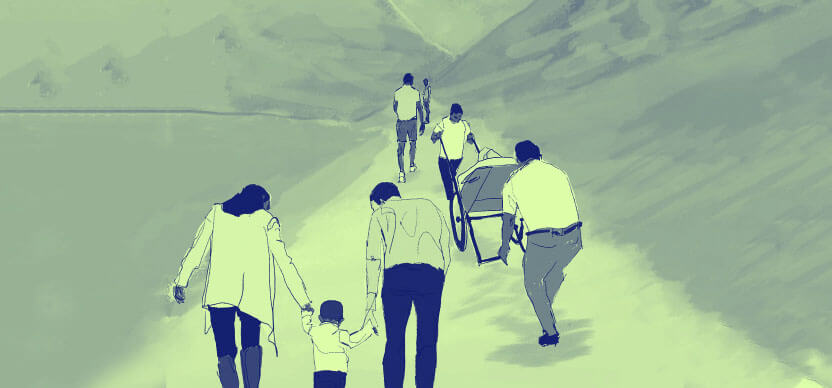
Abundant Health
Darius Loghmanee, Sam Osoro, Mae Badiyan, and Jen Wilson
A group of future architects that partners with individuals, institutions, and communities in learning to leverage reciprocity and cooperation to bring the deep stores of individual and collective knowledge and power to bear on challenges to their health.
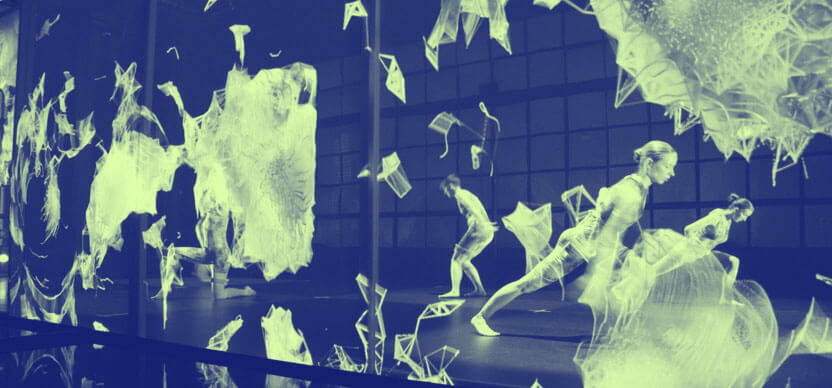
Embodied Intelligence
Heidi Boisvert, Melissa Painter, and Sydney Skybetter
A collective of future architects cultivating a brigade of movers, inventors, world-builders, and game designers who work to reawaken our collective sense of embodiment. We came together in acknowledgment of how our bodies carry intergenerational trauma and have been surveilled, controlled, and spun out of balance by our dependence upon technology. In response, we are creating body-first frameworks — at scale — to help people re-engage with their bodies through games, open-source tools, community-building, and public awareness campaigns as we prepare for re-entry to a COVID-altered world.
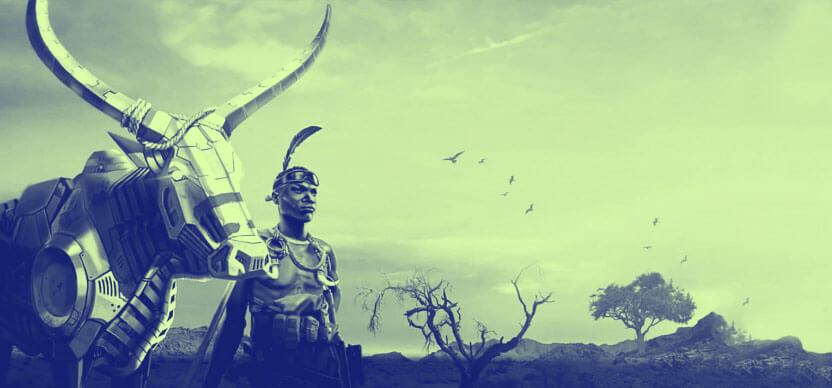
The Institute for African Futures IF/AF
Thomas Debass, Madebo Fatunde, and Chid Liberty
An independent dream + think tank that will serve as a platform to chart Africa’s shared future course and create a compelling vision of the continent. Partnering with some of Africa’s most passionate and visionary advocates, IF/AF will bring together future-driven experts from many sectors and disciplines to tackle issues from unconventional perspectives, gathering many hands to untangle the world’s pressing problems from Africa’s point of view. IF/AF will serve as a knowledge exchange and collaboration hub for forward-thinking public institutions, organizations, and entrepreneurs who want to forge strategic collaborations for Africa’s tech-driven future.

The Gift
Janani Balasubramanian, Natalie Gosnell, and Andrew Kircher
A collective of future architects inviting transfers of power between institutions, communities, and individuals through an interactive experience that “wakes the sleeping metaphors” in contemporary astrophysics research (to borrow a phrase from biologist Emily Martin). With a stunning, all-ages illustrated book and a sweeping orchestral score, readers gather together to explore the story of two stars; one of these stars will, at the end of its life, give over its matter — everything it has, everything it is — to its companion. The Gift opens up a metaphorical space to explore companionship, grief, renewal, loss, and what we can learn about ourselves and each other by observing the stars.
Programmatic Support
Cohort members participated in an orientation session, road mapping sessions, five learning programs, an advisory session, and a presentation feedback session over the course of 7 months.
Financial Support
Each Shared Future was provided a $25k prototype grant and a $5k presentation grant.
We entered the Shared Future Incubator with a hopeful idea of how health could evolve and emerged confirmed and focused on next steps to realize that vision. The inclusivity and collaborative environment of every Guild gathering, the genuine interest, enthusiasm, and encouragement of every interaction with Guild members and staff, and the challenging yet uplifting spaces created in the Incubator lent significant impetus to the process of clarifying our vision, harmonizing our thoughts, and taking the initial steps on our journey together.~ Darius Loghmanee
5
Learning ProgramsFrom the alchemy of our community, GoFA has developed the following signature programs to support practitioners of future architecture and the development of Shared Futures.
Futurist Writers’ Room
Informed by the speculative future practices of changemakers such as Adrienne Maree Brown, as well as the methodologies of organizations like Indigenous Futures, the USC World Building Institute, Sundance Institute's New Frontier Program, Allied Media Projects, Design Justice Networks' principles, MIT’s Open Documentary Lab and Co-Creation Studios, and others, the Futurist Writers’ Room catalyzes the collective imagination of the future—informed by an in-depth reflection on the past—as a fundamental step to identifying critical design principles and strategies.
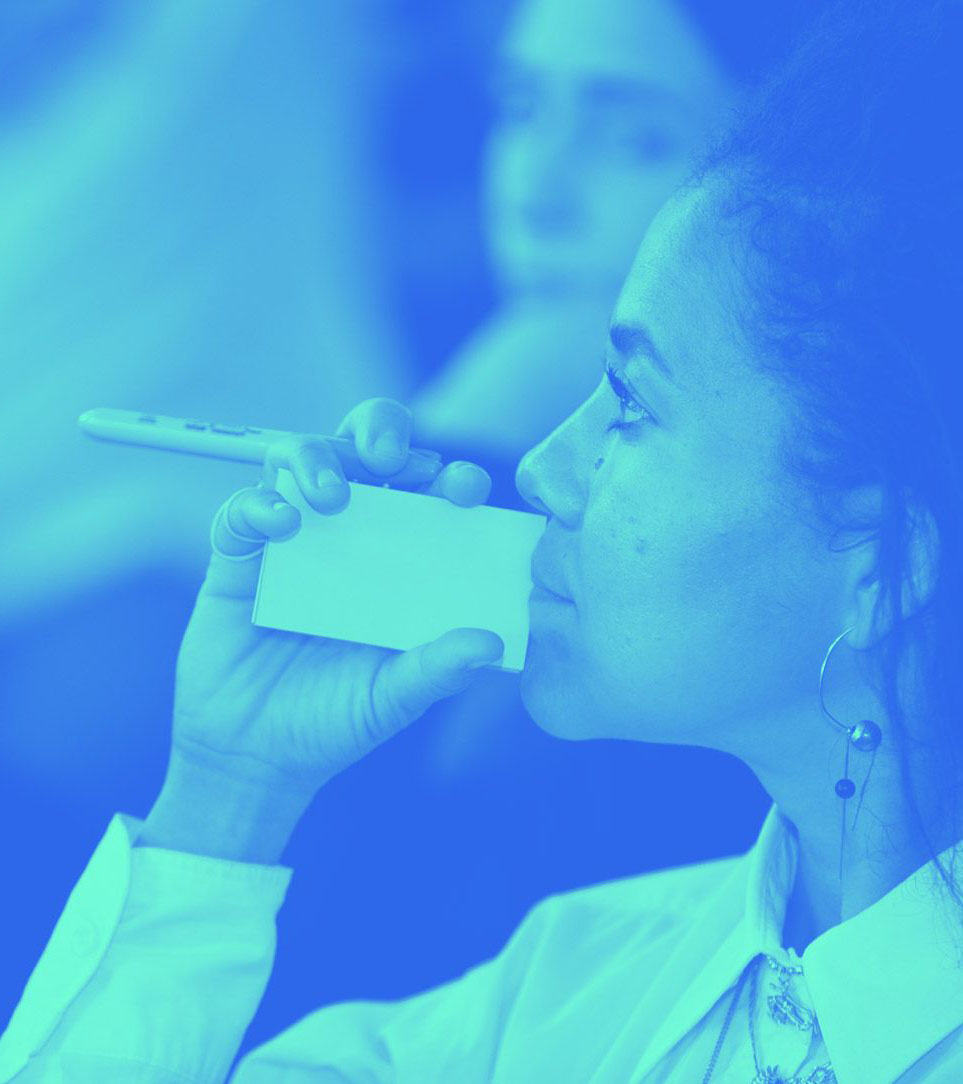
Story, Rule & Money Workshops
Participants are led through a framework for analyzing critical pillars that maintain a present state and identifying the critical pillars that need to be established to support a future state, then mapping the key levers for shifting reality from one to the other, as envisioned by the collective in a Shared Future. It requires collaborators to design for a shift in the stories (narratives) that inform people within a system, the rules (incentives) that create opportunities and constraints, and the money (resource allocation and generation) that fuel any reality to thrive. These tools help collaborators think through how story, rule, and money must change to bring the reality they envision into being.
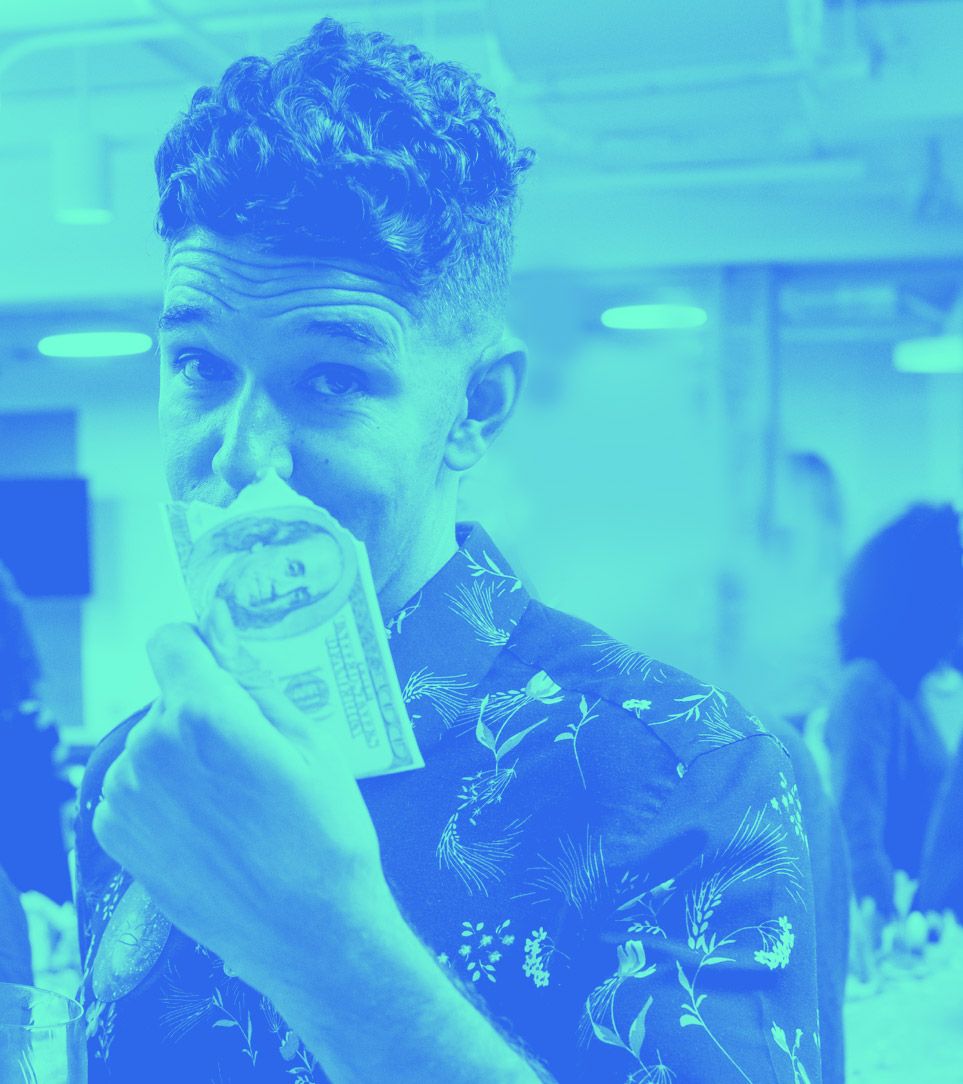
Community Model Canvas
Akin to the relationship between a business model and a start-up, a community model provides the blueprint for the strategic planning of Shared Futures. Our Community Model Canvas is designed to mirror the standard business model canvas to provide a visual chart with elements describing a Shared Future’s value proposition, infrastructure, stakeholders, and finances. Beyond aligning activities by illustrating potential trade-offs, the CMC also helps with prioritization in the context of shared prosperity. Most importantly, this technique of strategic planning requires planners to not just consult the impacted community, but to be the impacted community. At its core, it is a co-creation process for strategic planning.
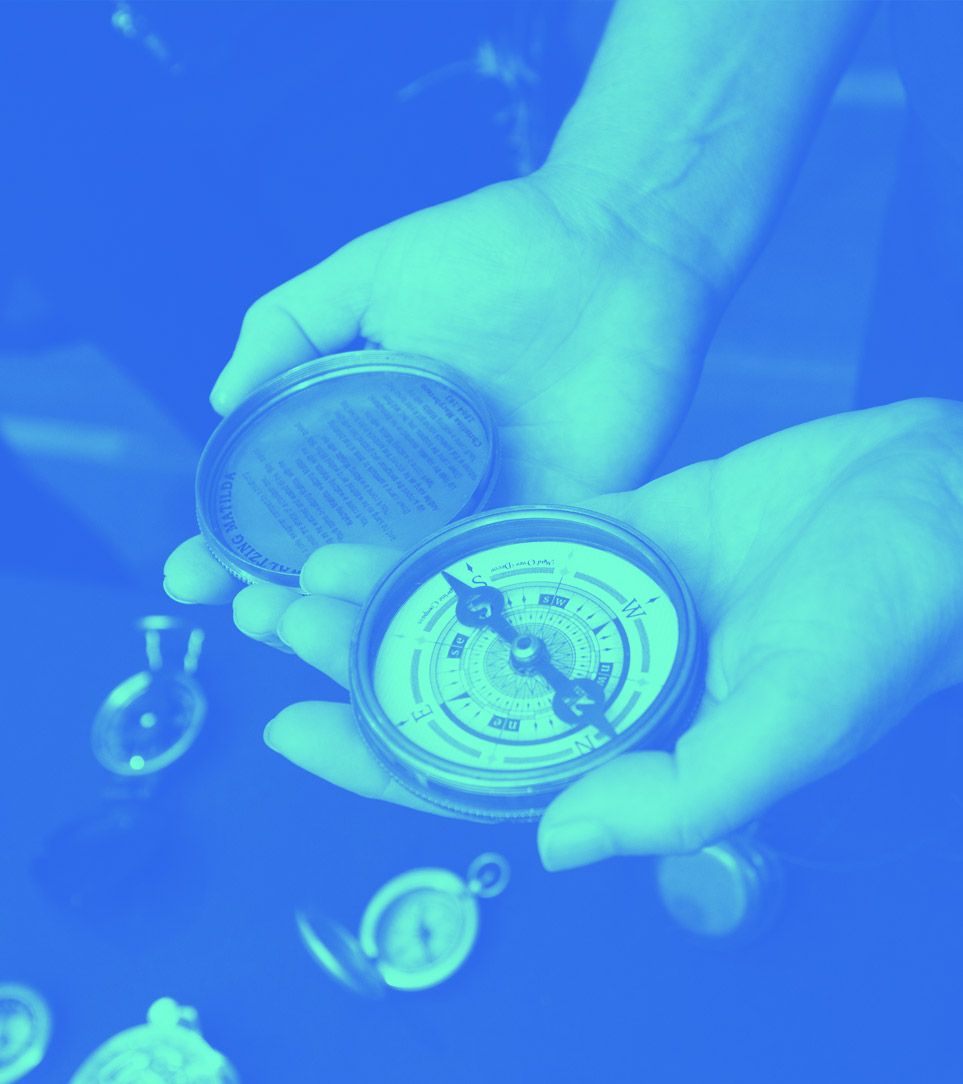
Group Dynamics Dojo
Teams participate in this program to negotiate and align the intangible — identity, values, meaning, purpose, motivation, biases, power dynamics, and money trauma — so they can build deep trust and creative flow to operate beyond conventional social constructs such as institution and hierarchy. The Group Dynamics Dojo is intended to introduce participants to the theory and practice of how to improve group effectiveness.
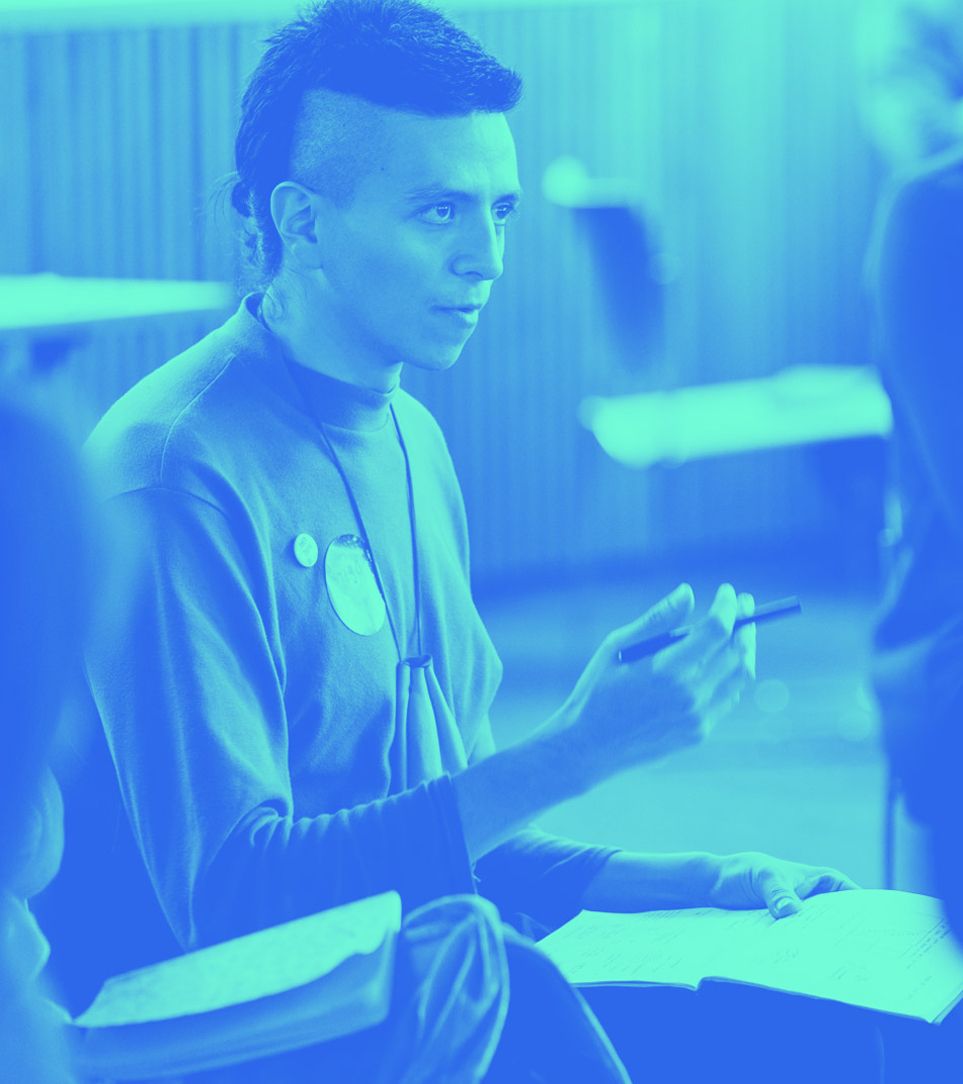
5C Meditations
Drawing inspiration from a diverse and intersectional bibliography, these meditation practices are designed to support a life-long journey toward mastery of five elemental skills: Curiosity, Curation, Coordination, Commitment, and Creation. They combine storytelling with somatic movement to help equip teams pursuing Shared Futures with effective processes to cultivate meaningful individual and collective growth.

20
Decades of 2020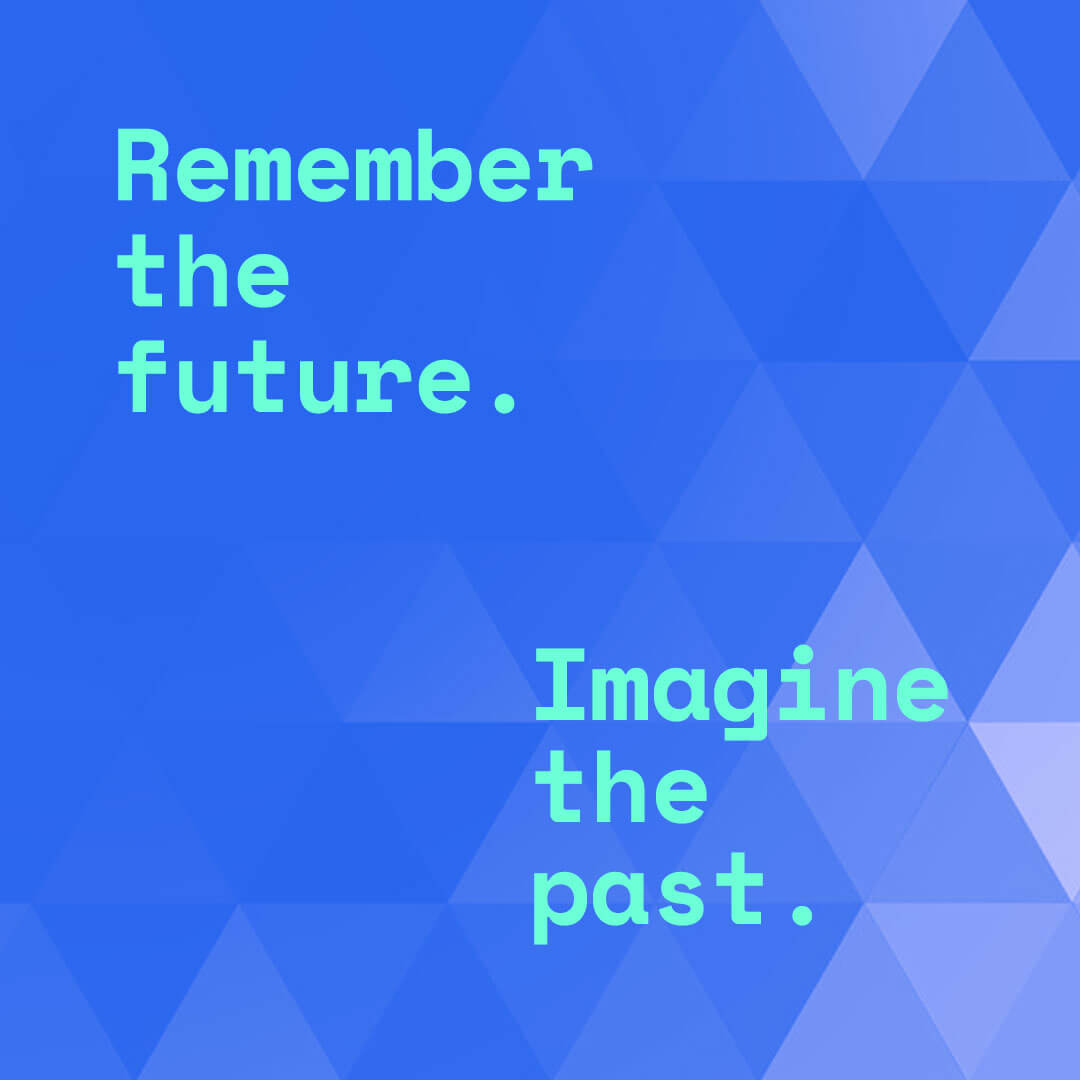

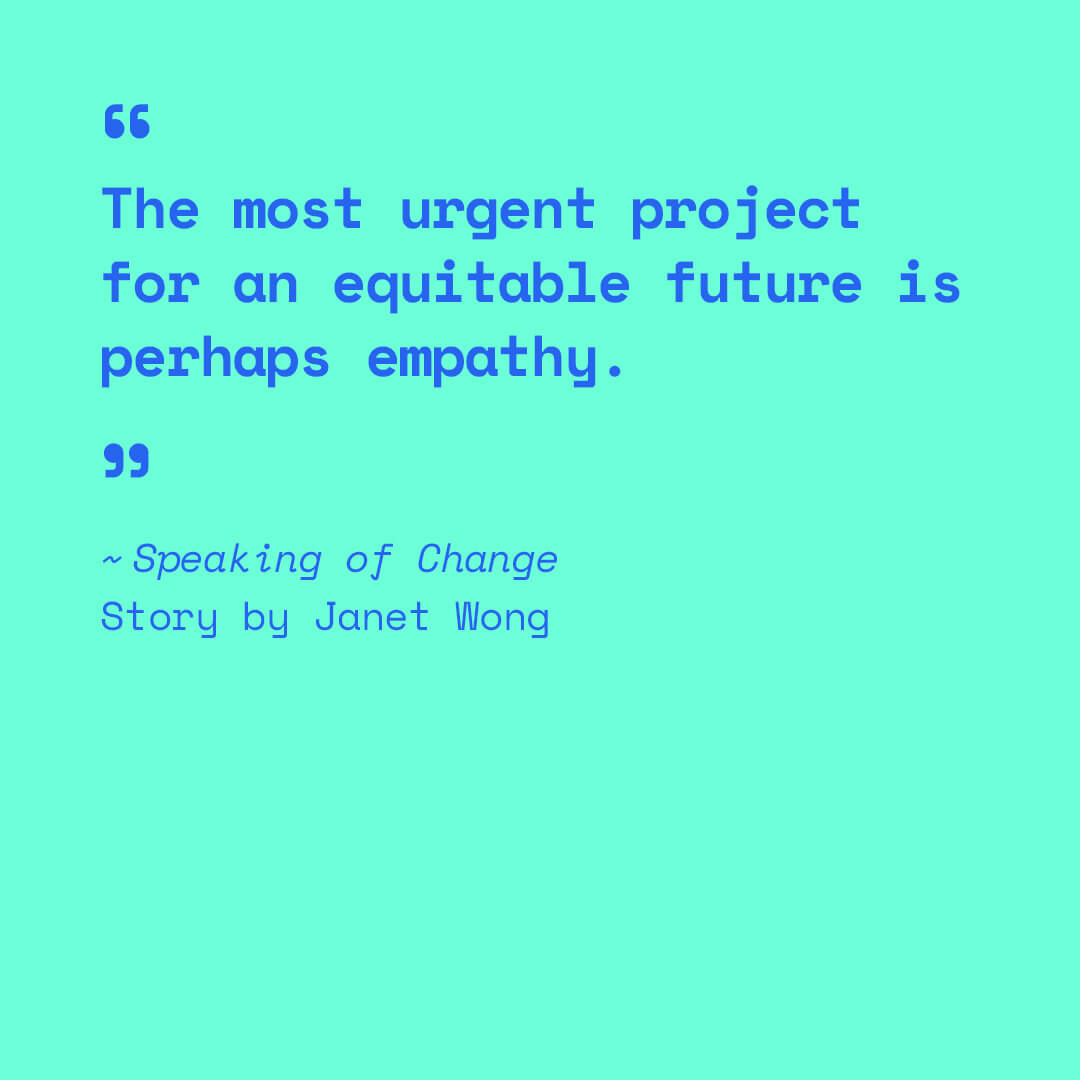
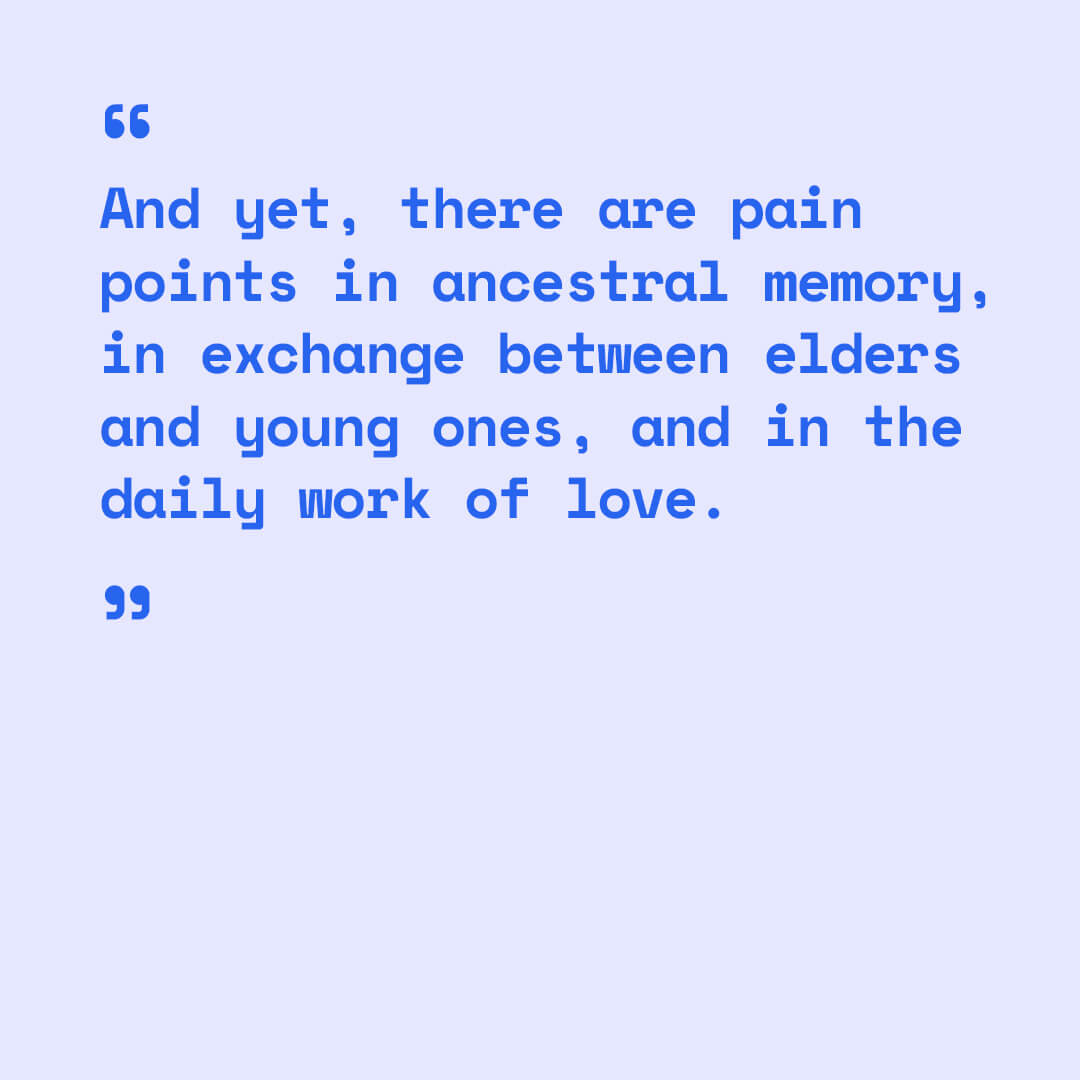
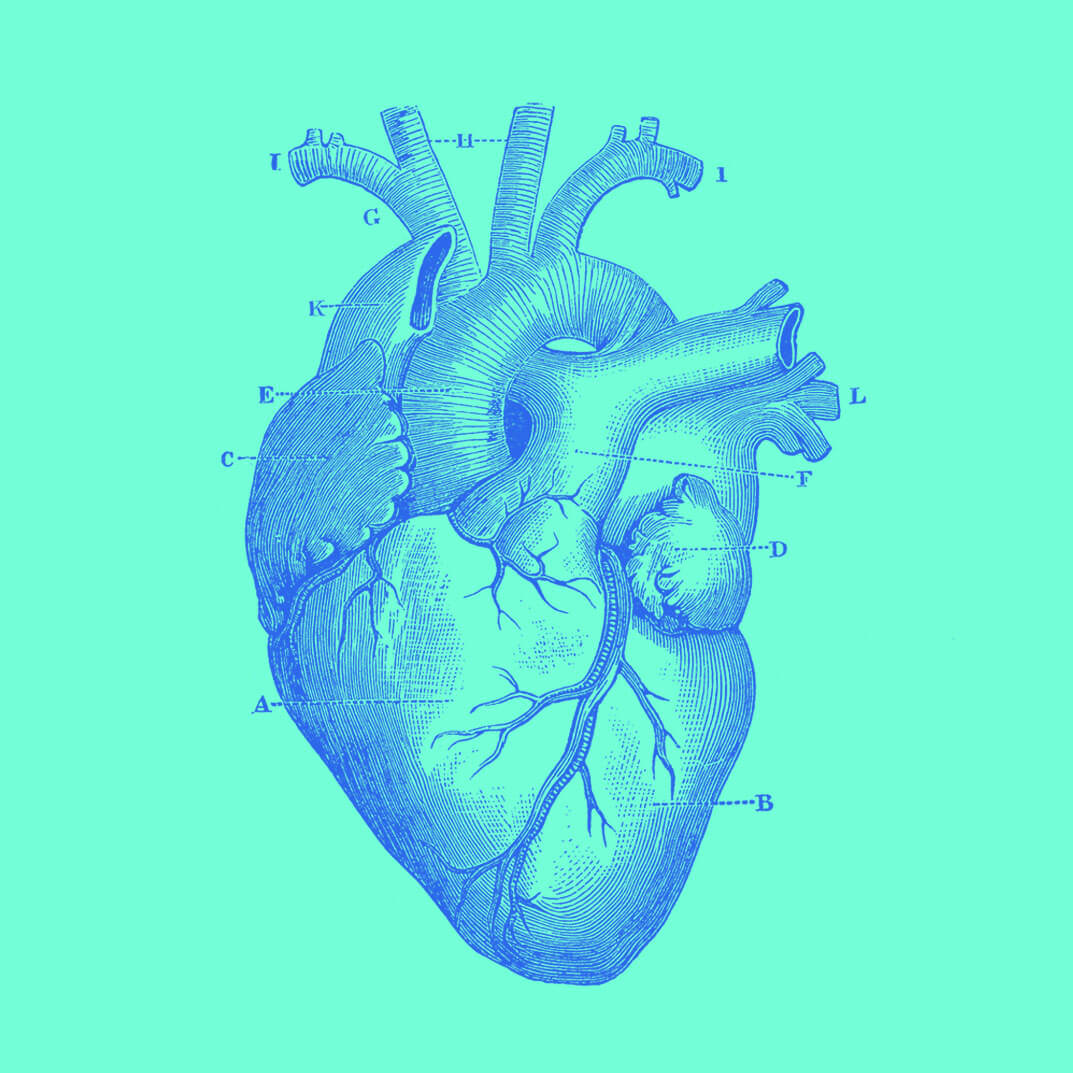
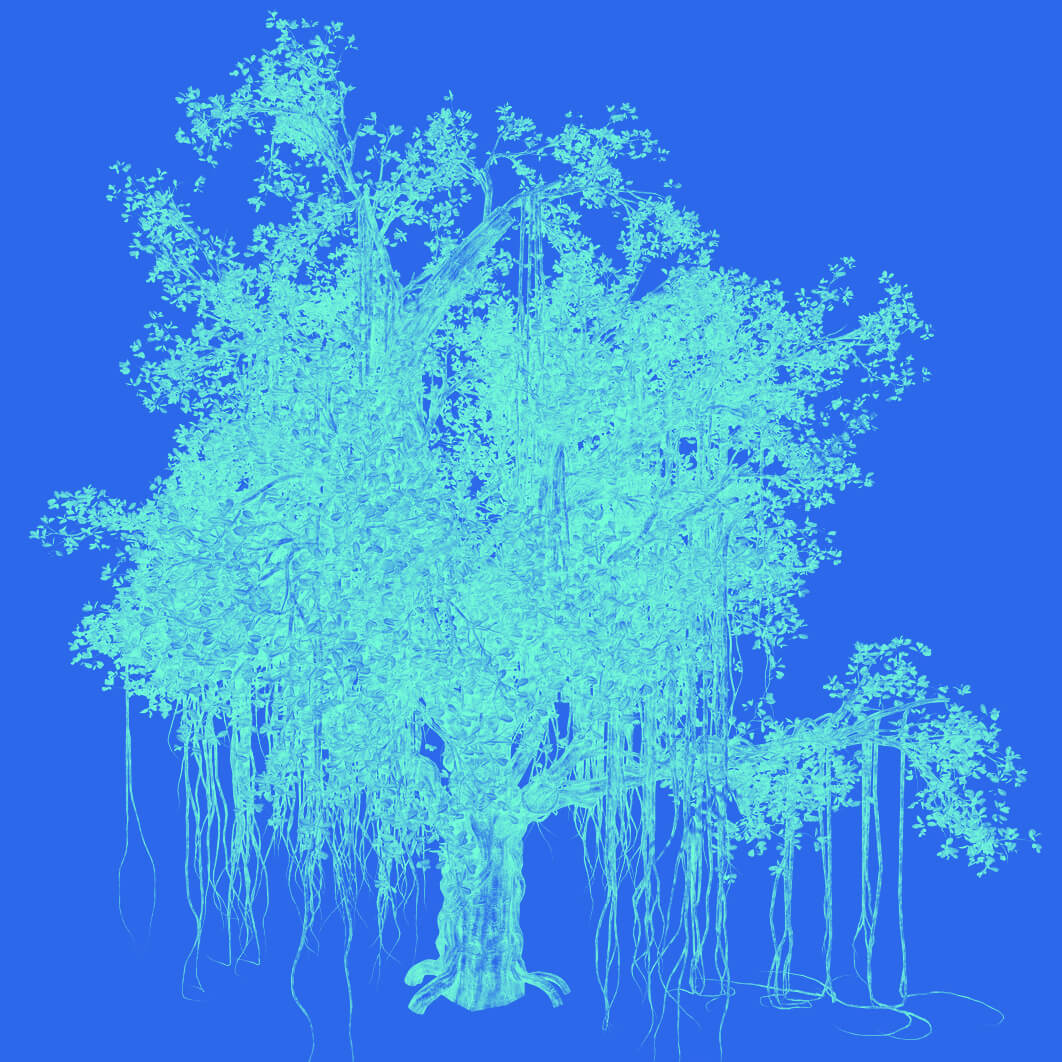
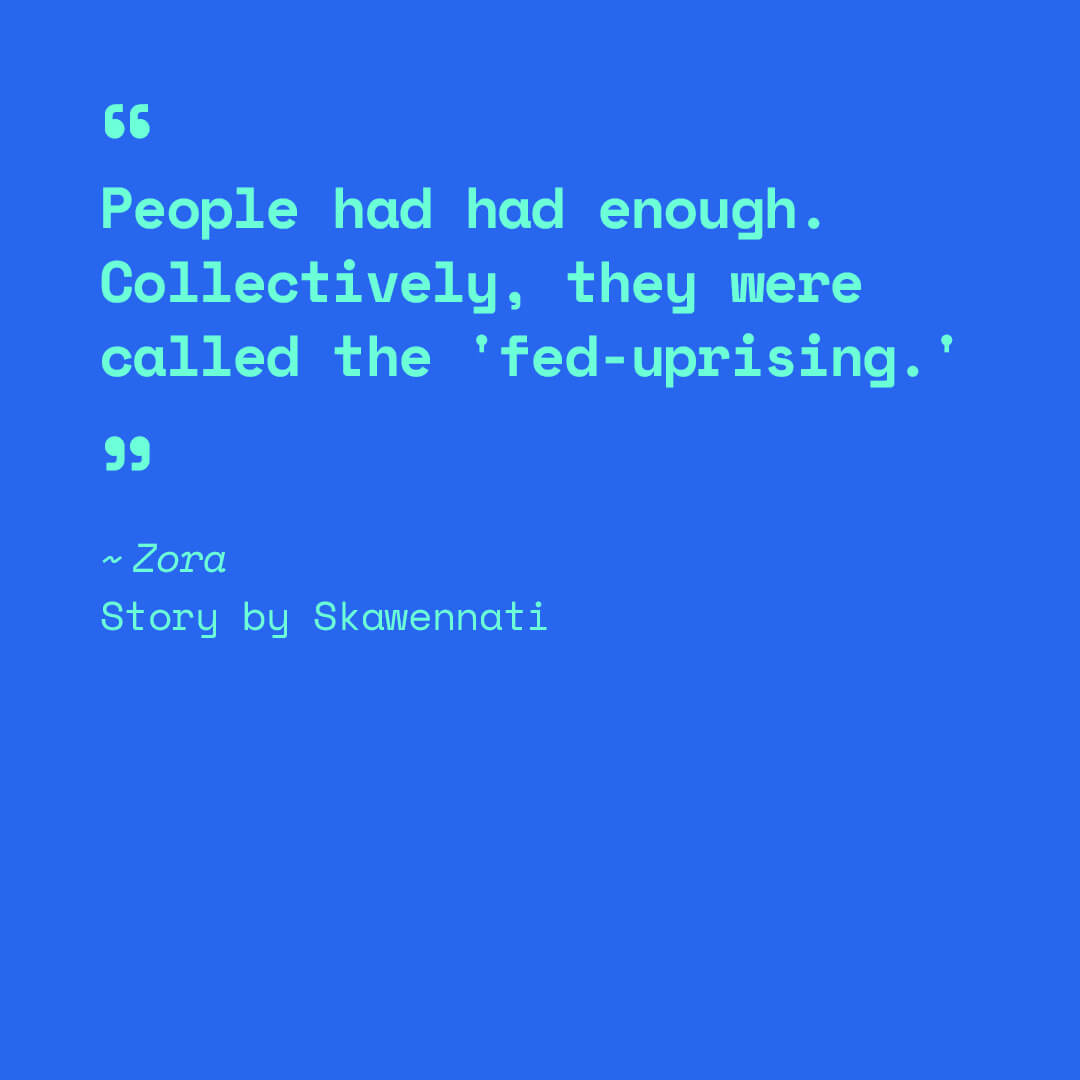
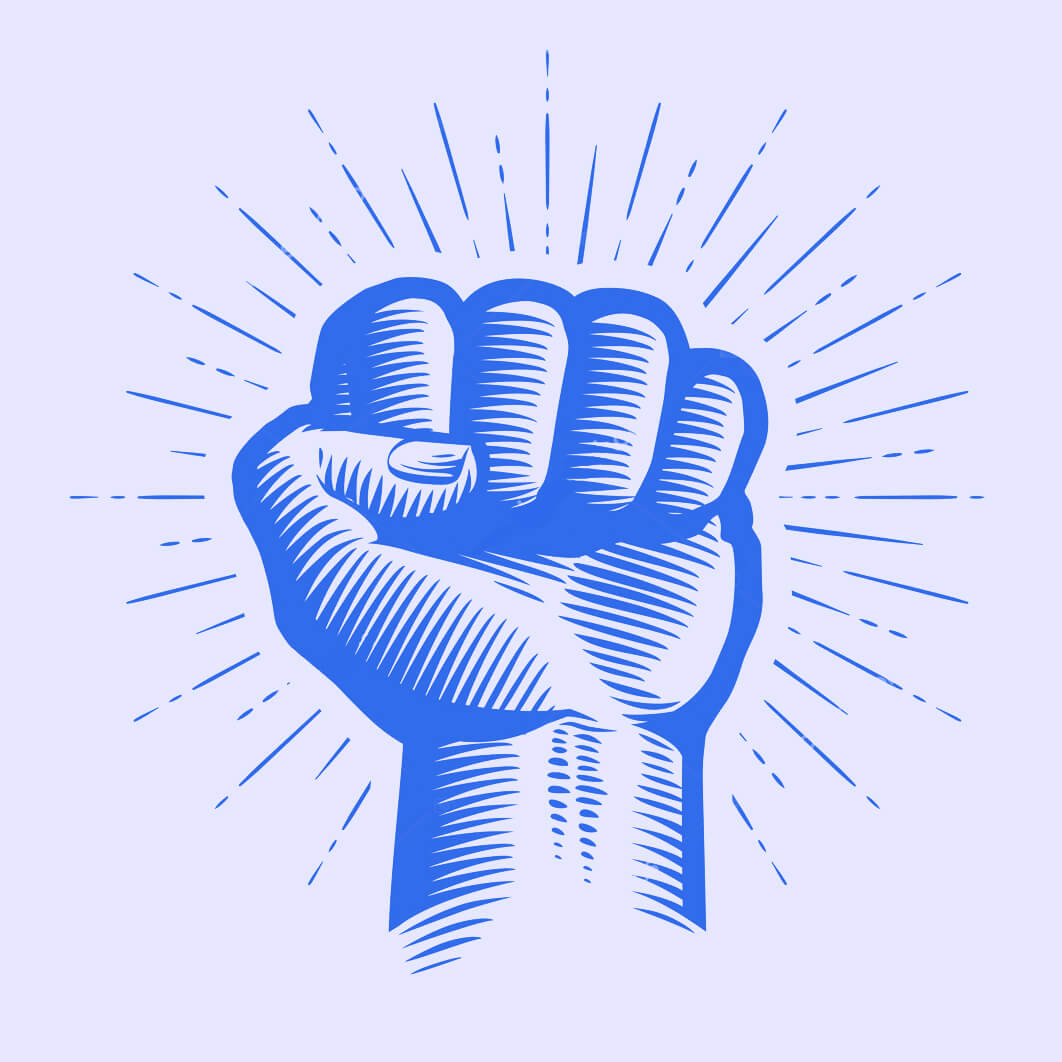
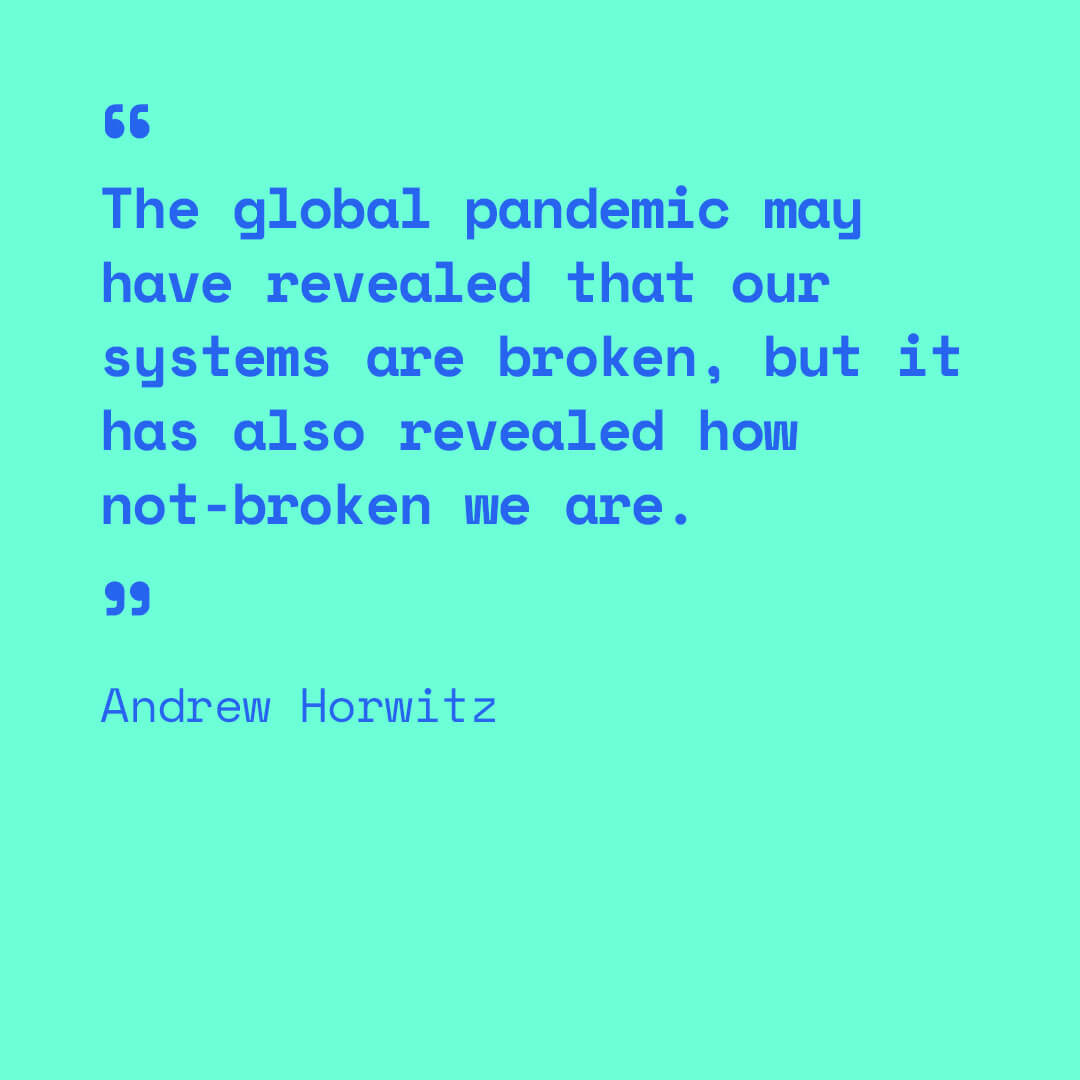
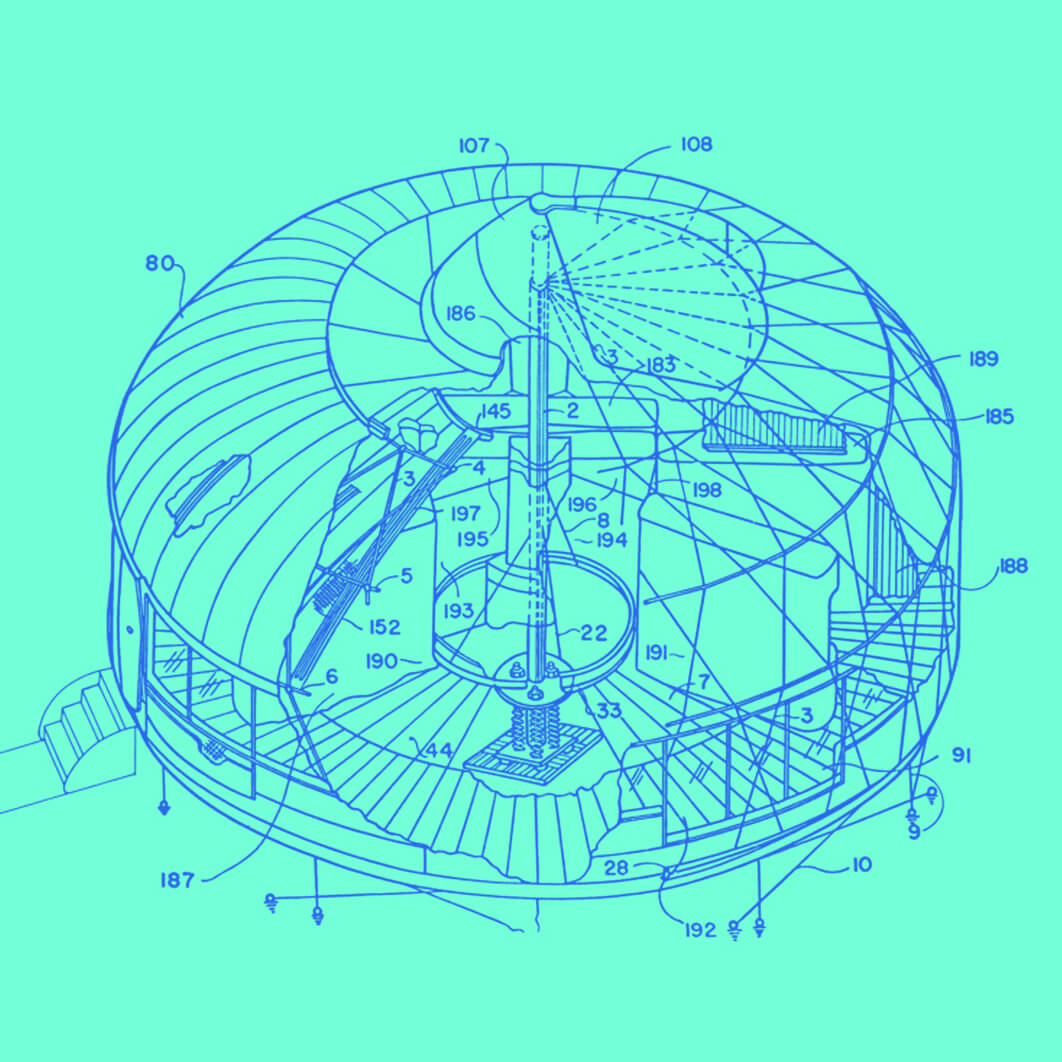
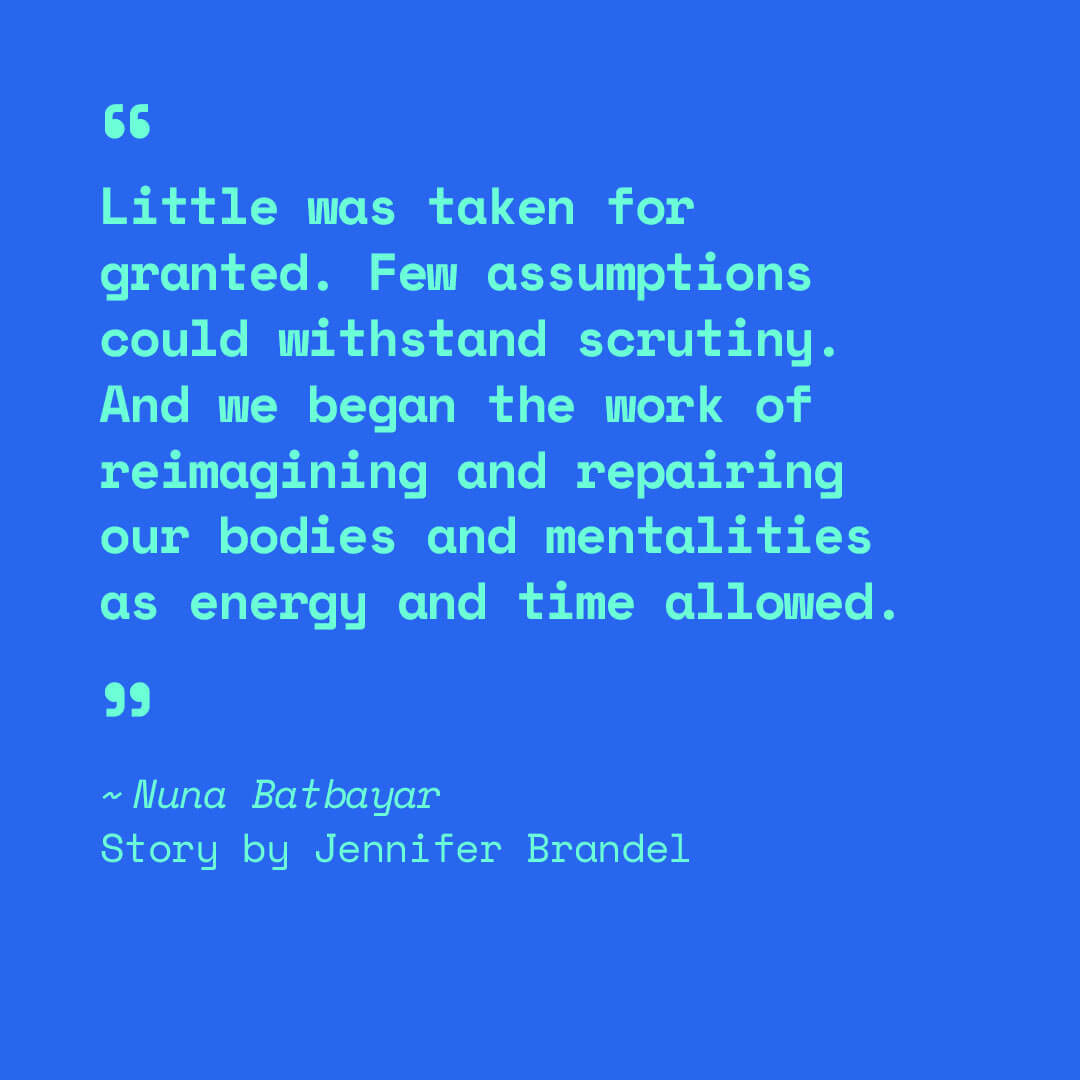
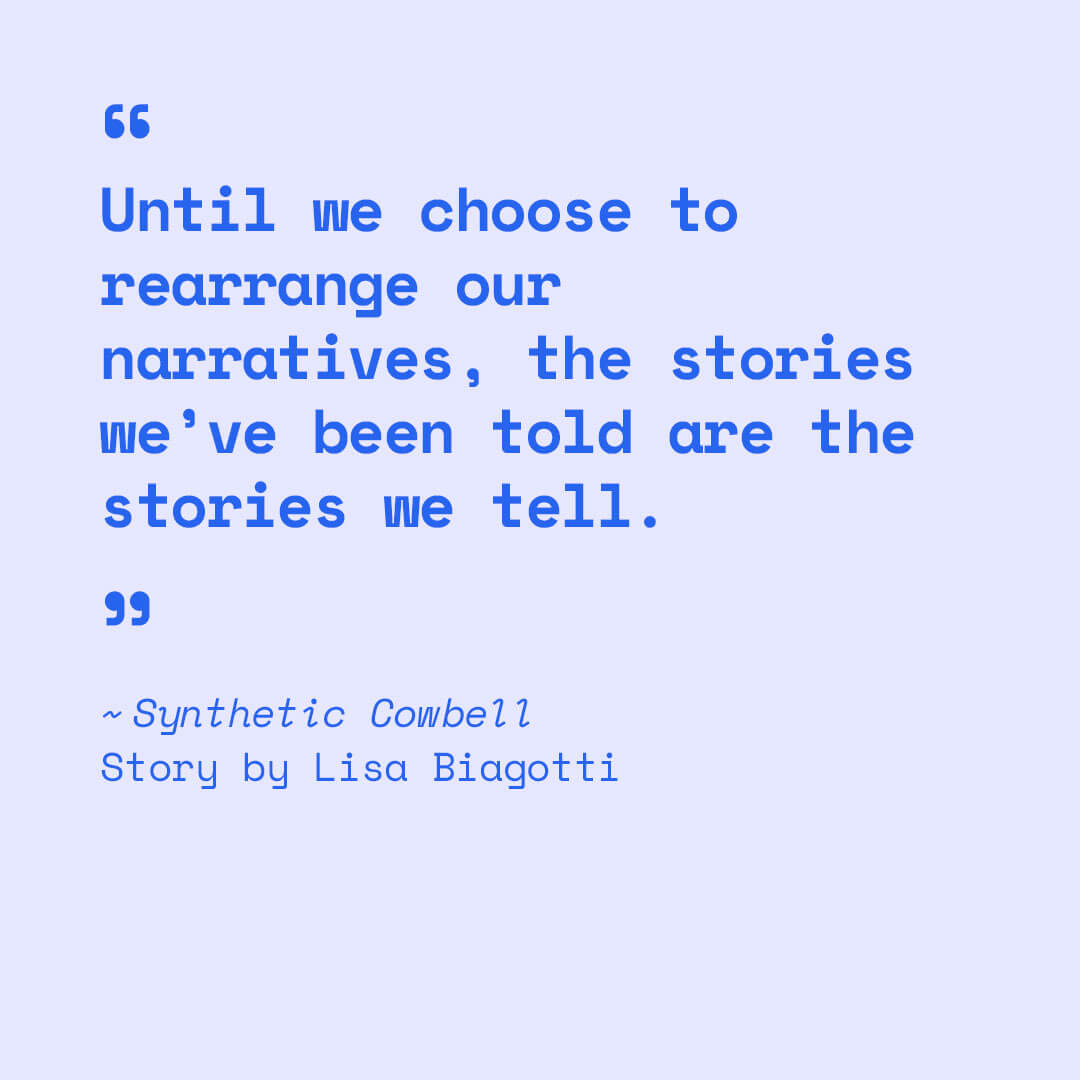
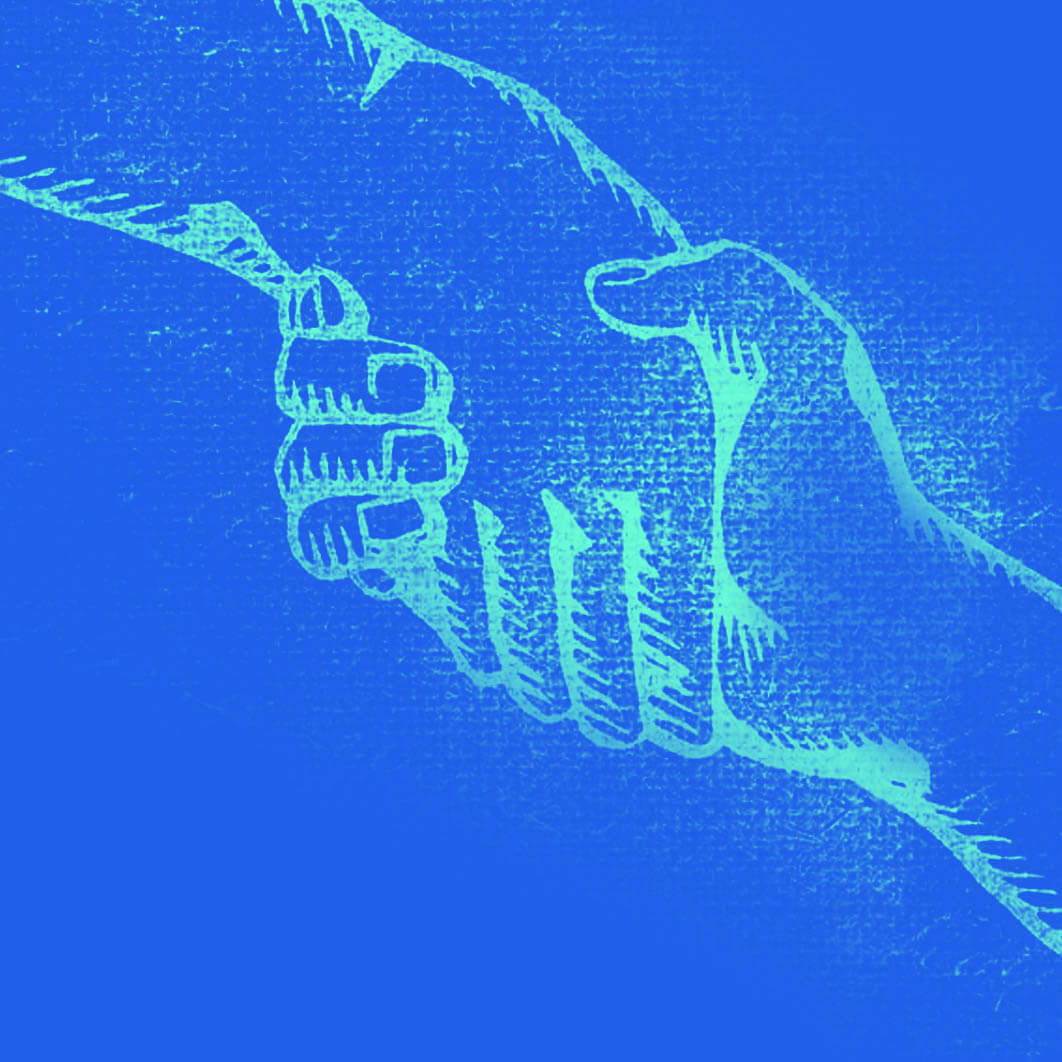
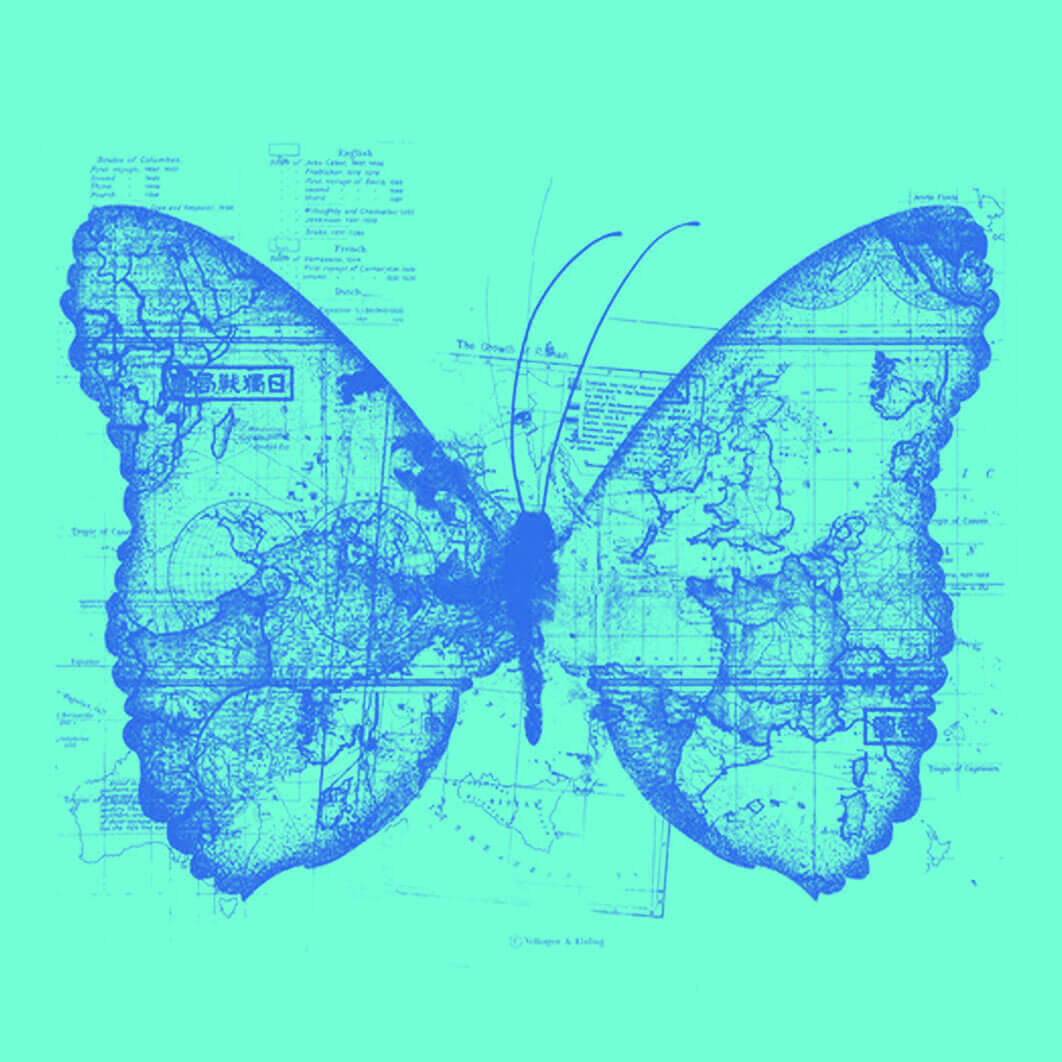
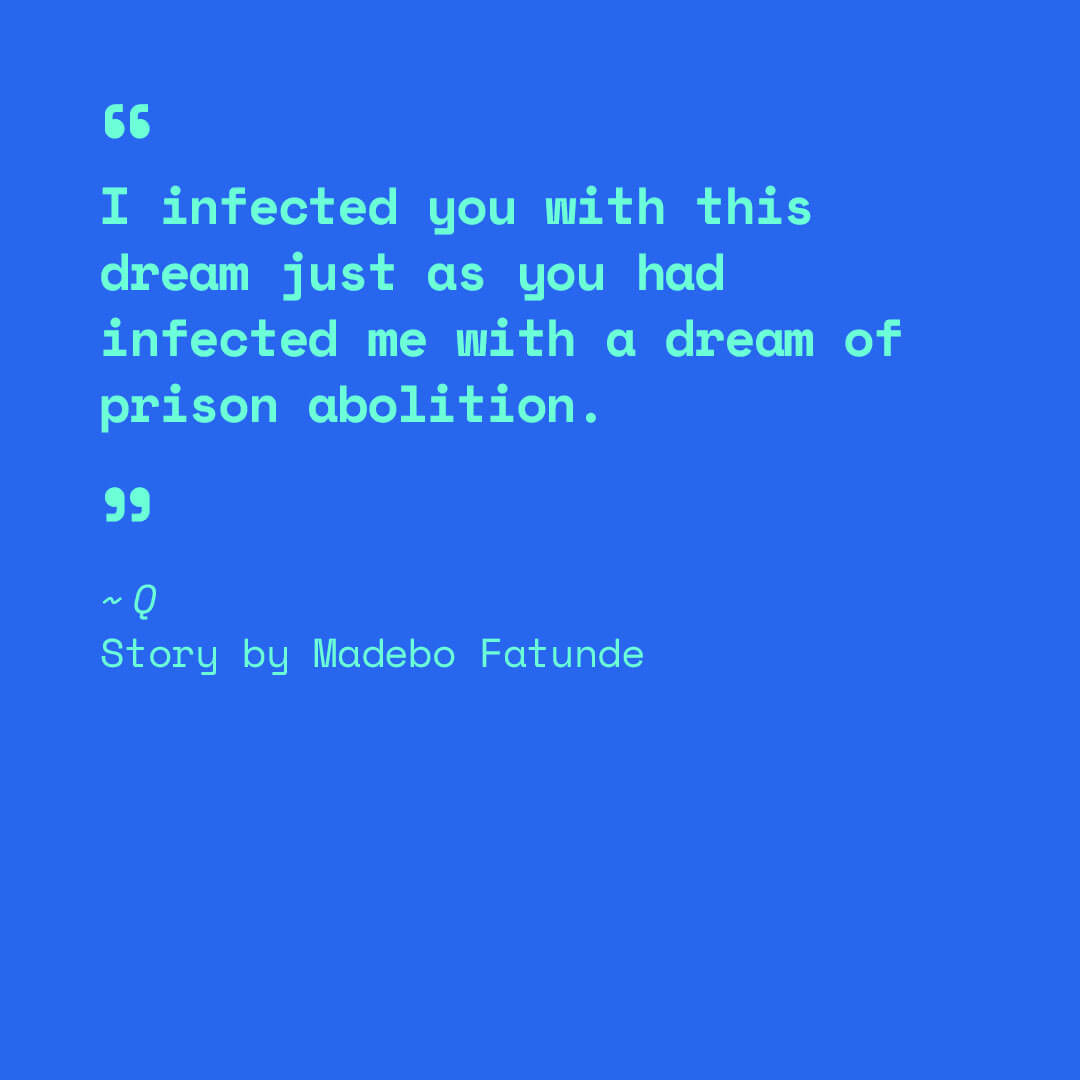

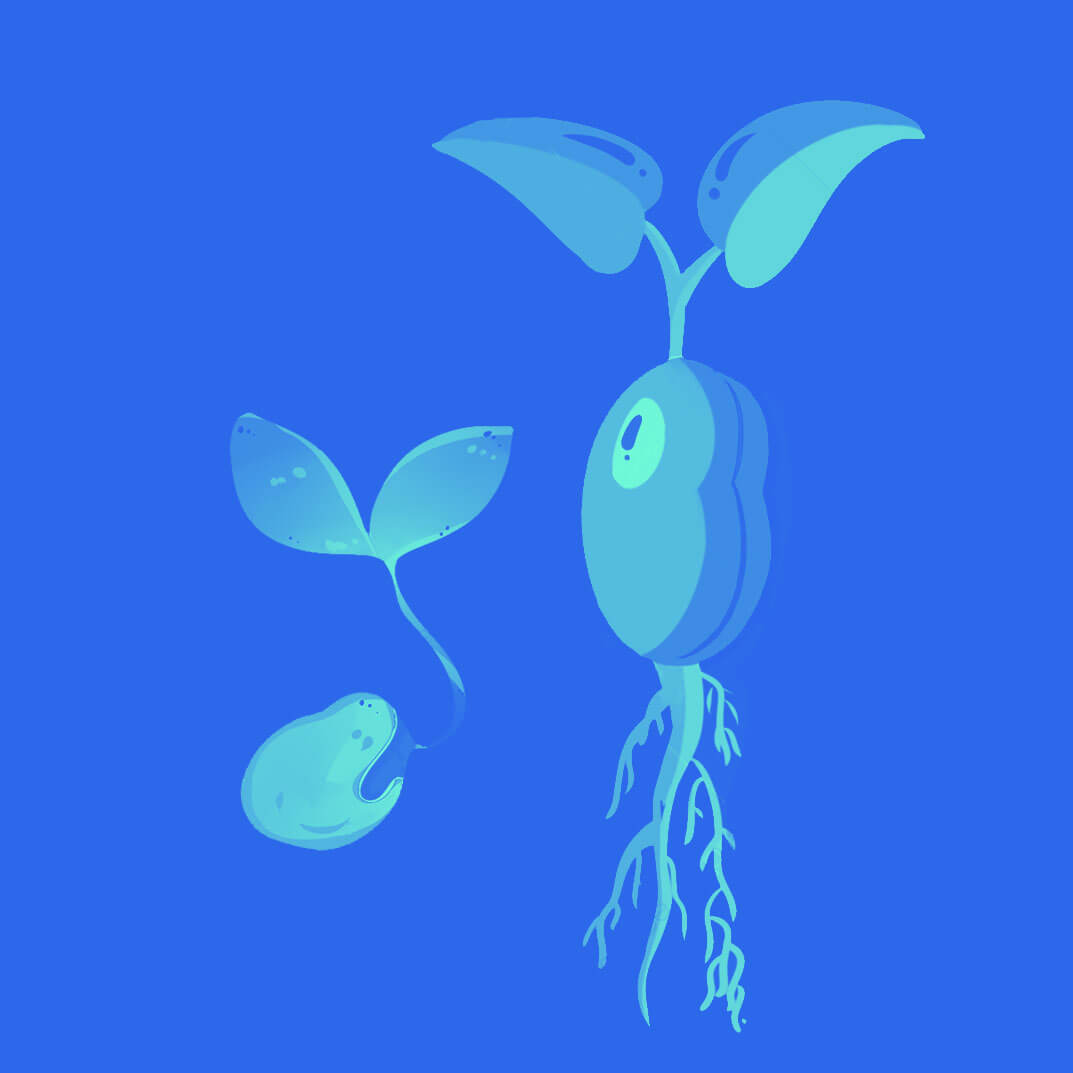
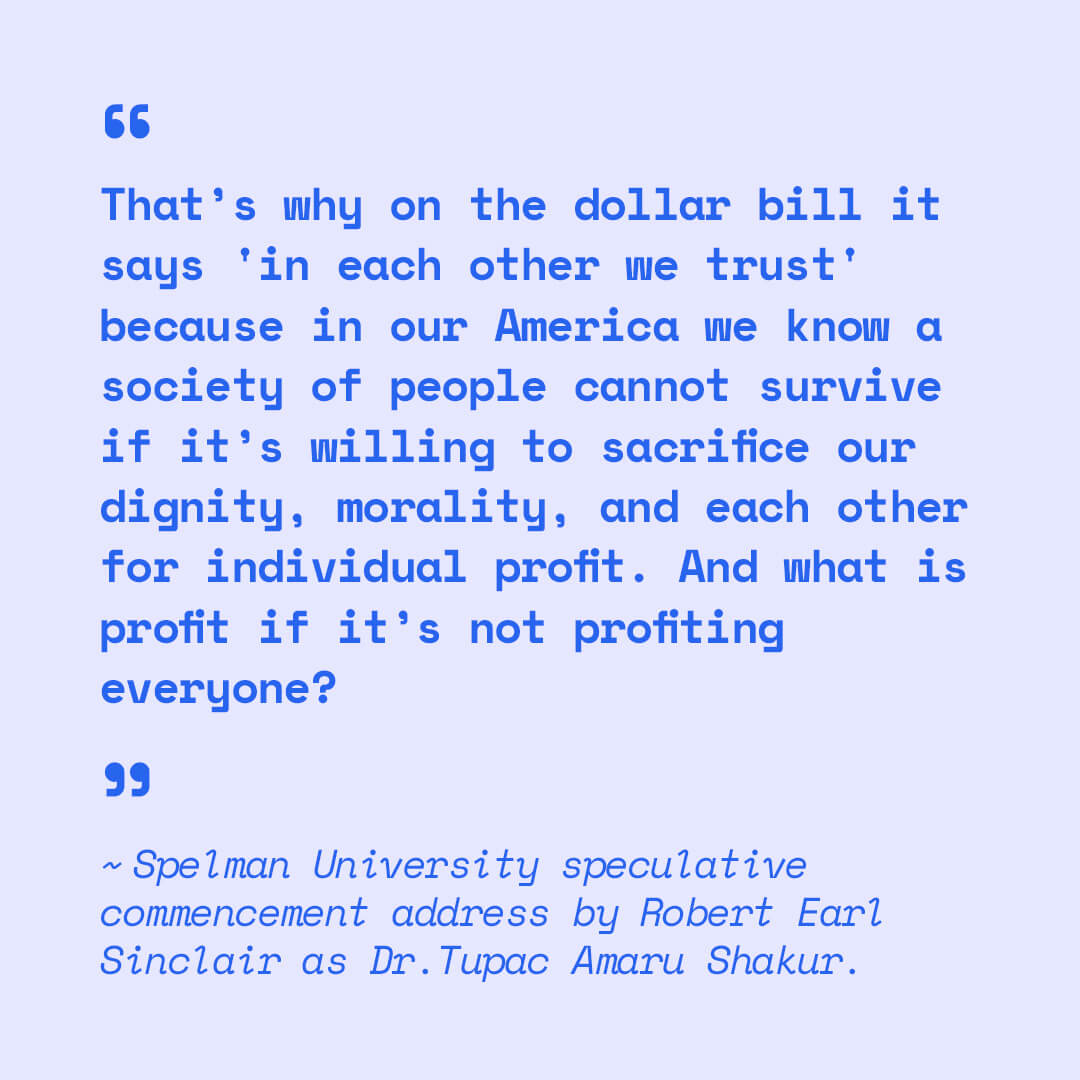
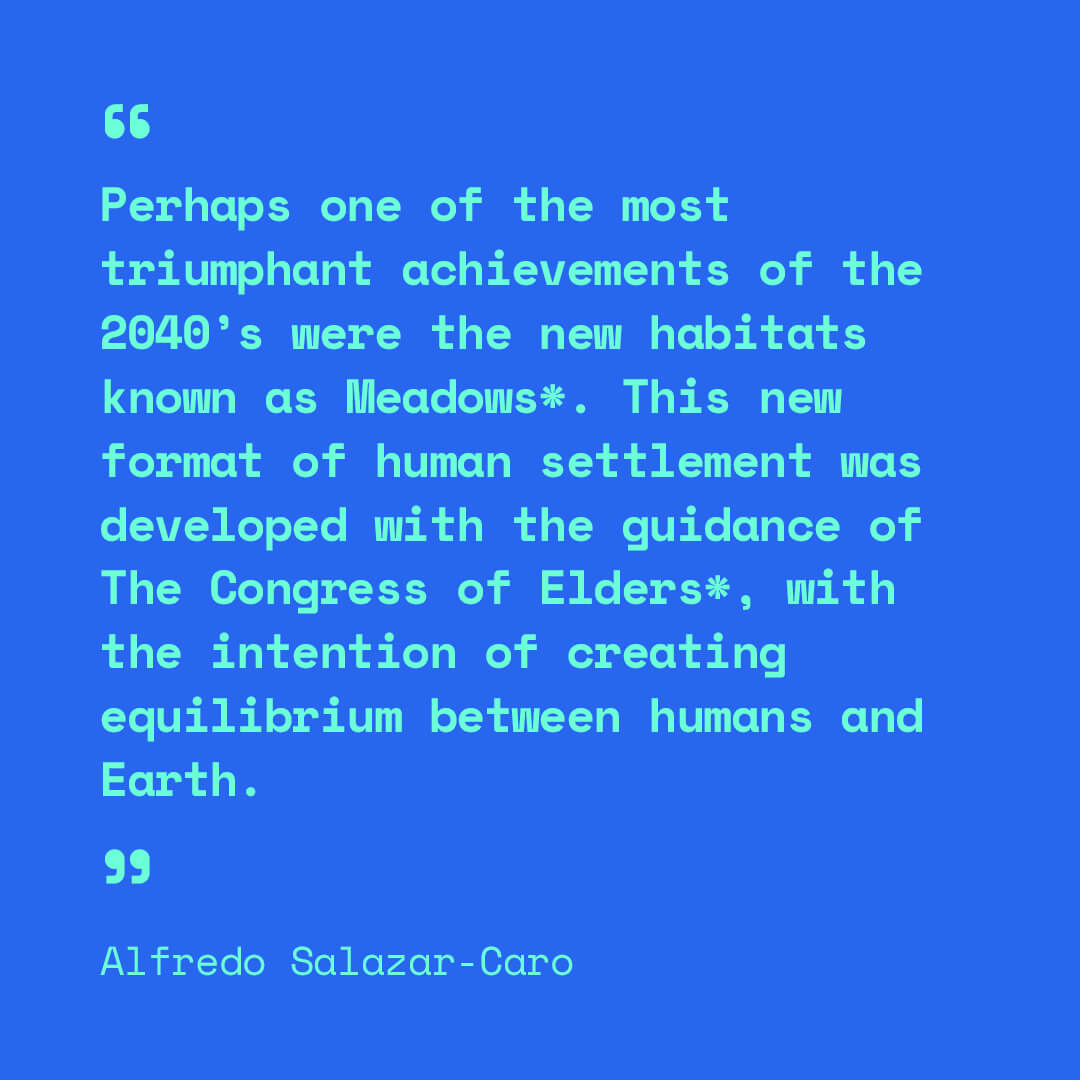
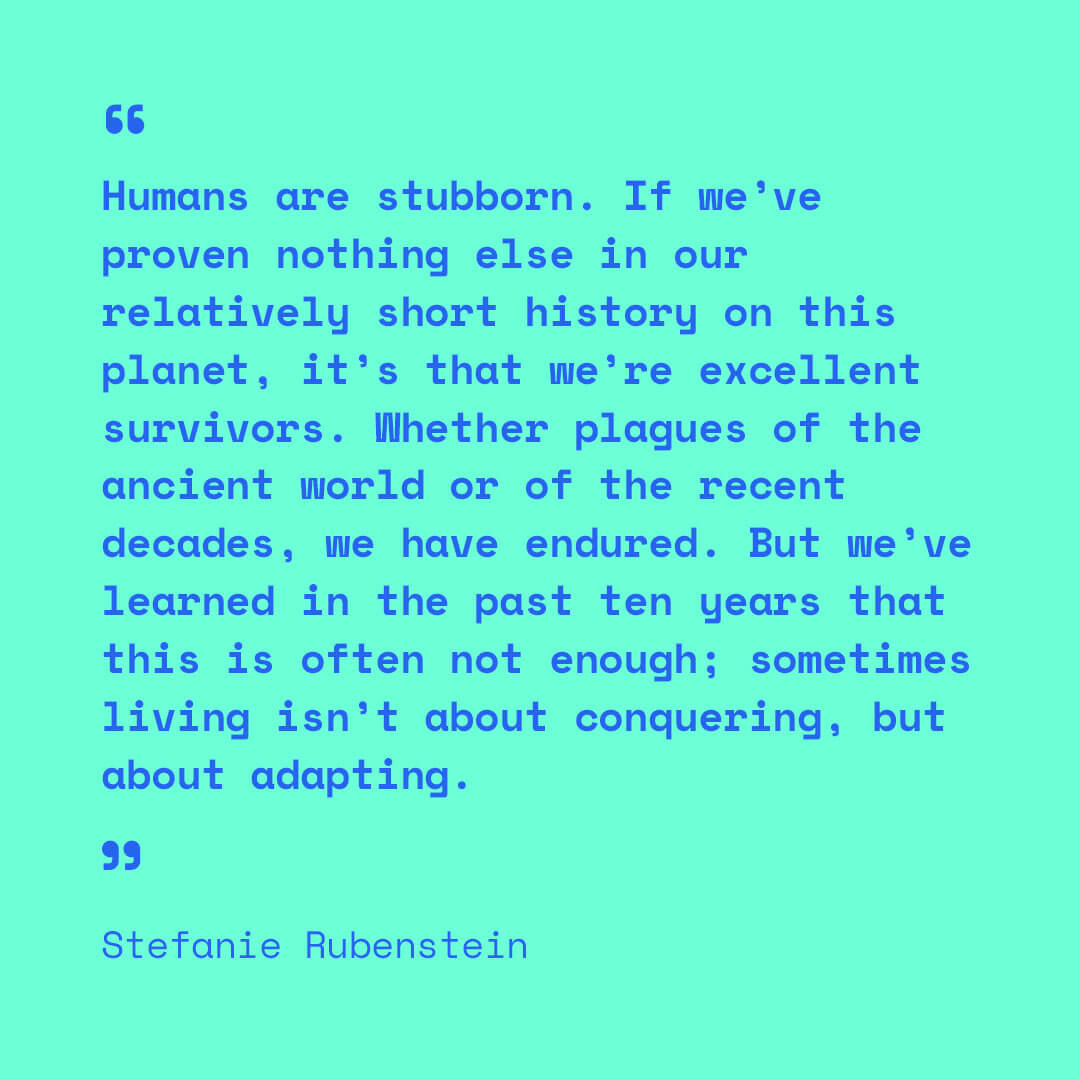

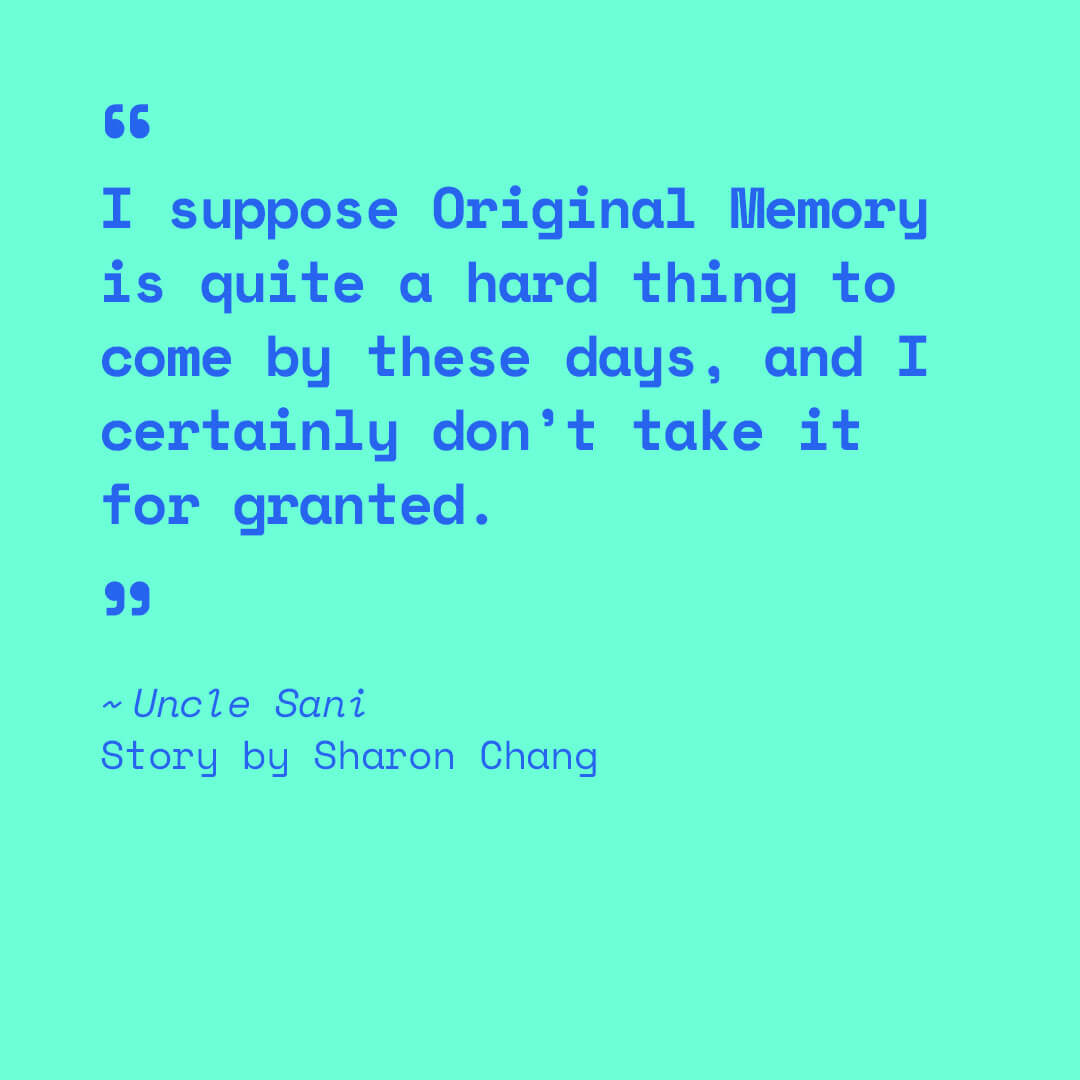
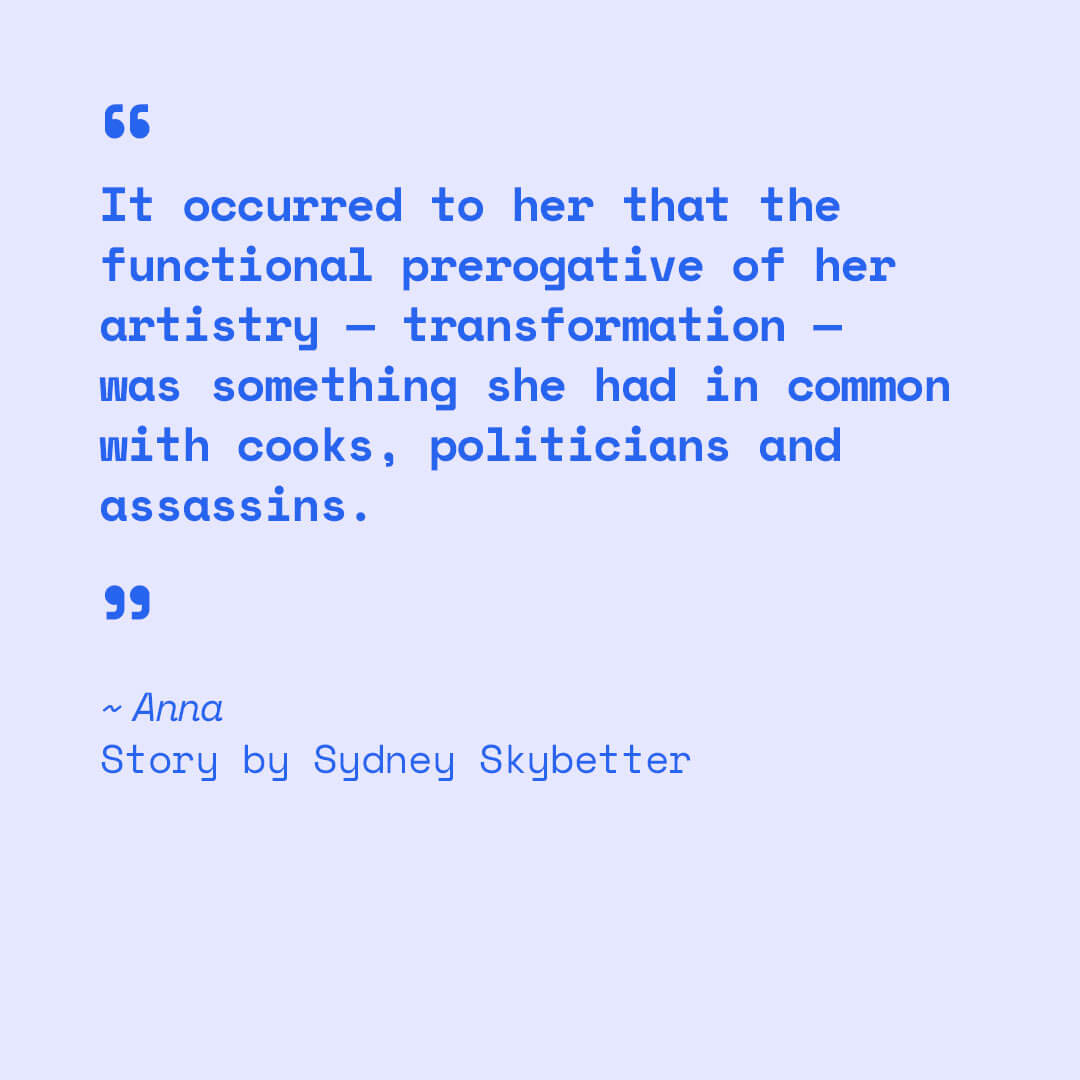
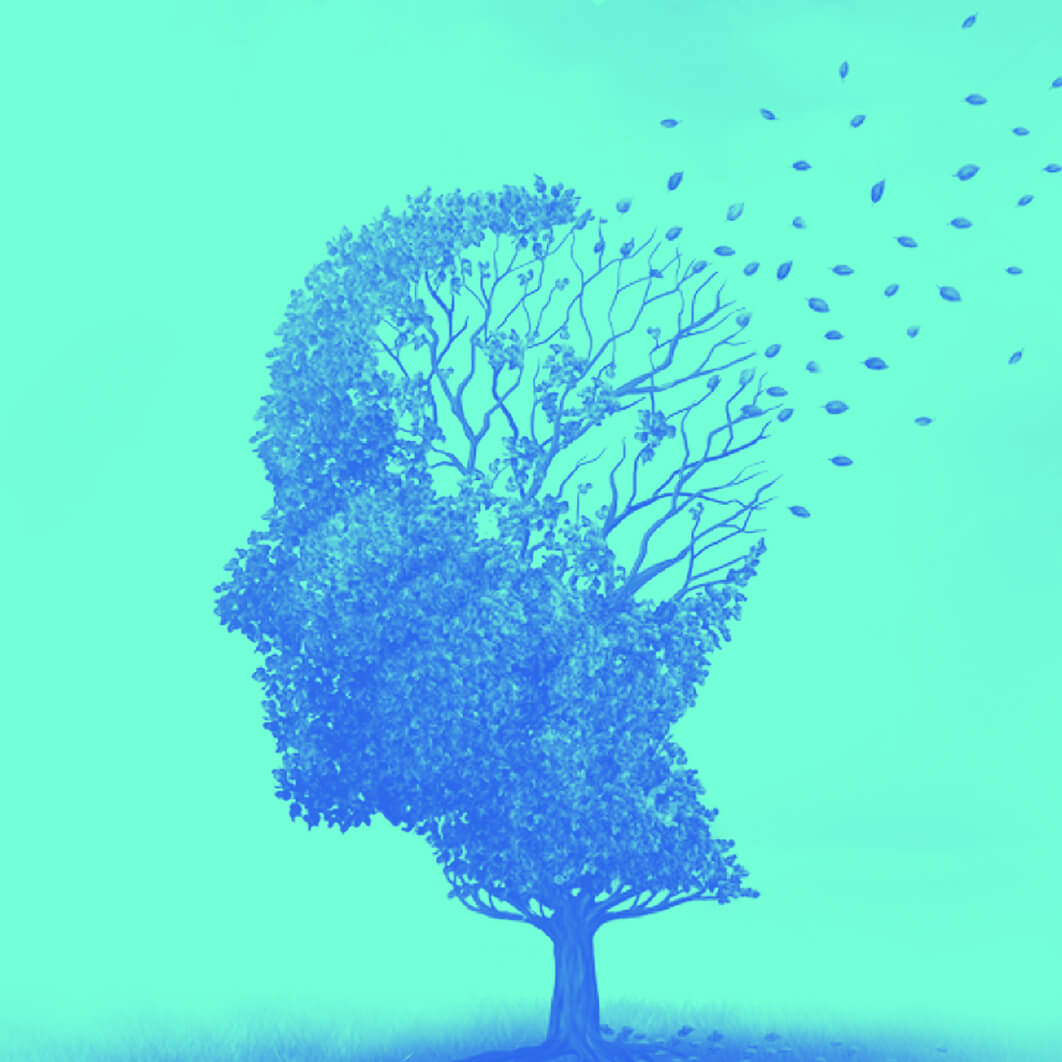
A closer look at the themes that emerged:

What if our systems were designed to reflect the complexity of interdependence, both human and non-human? The pandemic has exposed the breadth and depth of our global interdependence, whether we like it or not. How does humanity negotiate this reality for shared well-being at a scale never seen before? Over the next 100 years, we also have to adapt to climate change and steward exponential technology to equitably provide abundance without bankrupting our planetary resources. What does that mean for leadership models and political decision-making? Perhaps our understanding of “survival of the fittest,” which fueled the Extractive Age, was immature and destructive. What actually makes our species fit for survival is cooperation and collaboration in managing resources — a path toward the Regenerative Age that honors our interdependence.

How will the pandemic continue to alter the future of capitalist structures and the ways in which we conceive of our economic interdependence? We now have centuries of data and analysis to make arguments against both unchecked capitalism and extreme socialism. We know that neither model will work to balance the abundant resources promised by emerging technologies such as artificial intelligence (AI). In order to reverse worsening social inequity and environmental catastrophe, we must explore other forms of economic organization that place our care for each other at a higher priority over relentless market expansion.

As the fourth Industrial Revolution drastically alters the jobs landscape, people will have increased time for activities not devoted solely to generating income. Imagine a world emboldened by the value of lifelong play, learning, and creativity; a world in which people are resourced to engage in learning systems throughout their entire life as a form of recreation and community engagement — not just rigid programs from early childhood development to competitive higher education. As social unrest around job losses increases, how we tackle the future of non-work will be exceedingly crucial.

The pandemic pushed the broken aspects of our health and care systems into stark visibility in 2020, opening up people’s imagination for designing new systems to go far beyond reaction and repair. How are we building infrastructure for delivering the basics of well-being from cradle to grave? How might we build circular care systems that are fully integrated with community life — from housing to food, from education to health, from social inclusion to cultural connectivity? Imagine rich relationship models between experts and communities that reverse the worst consequences of the 1910 industrialization of care sparked by the Flexner Report. How does everyone show up for mutual care?

The pandemic abruptly shifted the entire globe’s population into a very different orientation to the workings of daily lives. Perhaps there are lessons to learn to inform a future of work that doesn’t have to be at odds with all other aspects of life. The industrial age created silos between work, education, home, community, and the natural environment that may no longer be the norm in our future. Imagine ways to more fluidly engage every dimension of living to make our waking hours less compartmentalized, alleviate the public health impact of time poverty, and reorient working hours from desk-bound to full mind-body integration.

Although much has already been said about care systems that include more than the mid-twentieth century ideal of a heteronormative nuclear family, imagine an alternate reality that not only embraces and supports LGBTQIA families but also returns to non-patriarchal polyamorous family structures that have been common in various cultures in history, including indigenous American communities. What are different legal structures that support the rights and protections of families with multiple stakeholders, guardians, and parents? What are alternative housing structures that allow for more complex family norms?

In the midst of a pandemic, a presidential election, and an unprecedented racial reckoning, the U.S. government gathered data for the census. It sparked imagination on new ways to catalog our identity data. What if politicians and scholars created more complex, dynamic, and fluid frameworks for understanding people’s identities to reflect the diversity of actual lived experiences within our human populations? This could help us make more fair and equitable choices about designing for access, representation, and power. How might we go beyond essentialism so that every person is recognized and valued for their multiple identities?

Is it time for an expansion of our concept of literacy? Although we are still working on educating every person in the world to be able to read and write, we also need to catch up on technological literacy, media literacy, and “truth literacy” (or what some might call “power and justice literacy”). What if, from an early age, people are taught to investigate truth for themselves to mitigate blind allegiance to narratives? Might this literacy, combined with the greater investment in human potential, dampen the draw of extremist groups that thrive on disenfranchised and disgruntled people? Assisted by unbiased algorithmic systems that would not only surface facts, but are able to translate meaning and provide examples of cultural context in datasets, expanded literacies might better inoculate us from disinformation and division to reach a more pluralistic and liberated future.

The dynamics of 2020 brought a convergence of justice issues to the forefront and provoked ideas about how to reckon with our complicated and traumatic pasts and present. What roles did we play in allowing systems of oppression to be perpetuated based on binary ideologies of scarcity and zero-sum? What if we reoriented our systems to non-binary philosophies such as Ezumezu or Ubuntu? Legacies of oppression were designed to restrain others from using resources that the dominant group wants control over. What if we understood that the dominant group actually missed an abundance of resources by losing the untapped potential of all those who were subordinated? The Great Reckoning provides a mirror and a pathway towards unlocking the full scope of human potential. By facing our history with honesty and courage, we can learn, heal, and mitigate our worst tendencies.

Addictive design, biased algorithms, the misinformation crisis, and social media’s impact on mental health are just a few of the issues that our technology and media systems are being called to rectify. How might we design more responsible public and private spaces for communication? Beyond taking a defensive posture against the worst pitfalls, can we shift our design imperatives to explore the best possibilities in a just and equitable manner? Without a healthy media and technology infrastructure in our hyper-connected world, every other system is at risk of being manipulated for injustice and oppression.

In a time of rapid technological, ecological, and economic change, people are increasingly afraid of an uncertain future. Additionally, some are responding to layers of legacy trauma from previous rapid change cycles (i.e. family farms to factory farms in the 1970s; or factory work to computer work in the 1980s). Many of our polarizing politics may be caused by a feeling of losing control coupled with a poverty of imagination. What if instead of having the future prescribed by others, we created processes for people to feel a part of the design of their own futures? What if social media was used to facilitate co-creation, so people feel agency in the way we adopt and adapt to changing circumstances?

A convergence of factors is catalyzing a deep re-evaluation of the politics of knowledge. The dominant system has marginalized or appropriated important information from non-Western and non-male sources. It demonstrates a bias toward hierarchical structures that offer ownership and authorship legitimacy to one source or figurehead, failing to recognize knowledge generated and maintained through collective wisdom and complex scaffoldings of contributors. A more sophisticated accounting of knowledge production is crucial in a communication architecture that is more dynamic, expansive, complex, and intelligent than ever before. How might knowledge stewardship look different than knowledge ownership? Perhaps the benefits of intellectual property could be re-distributed. Perhaps collaborative knowledge generation could be tracked and made more visible with advanced blockchain and smart algorithmic systems.
An excerpt from one of the many speculative narratives from 20 Decades of 2020
Key Partnerships
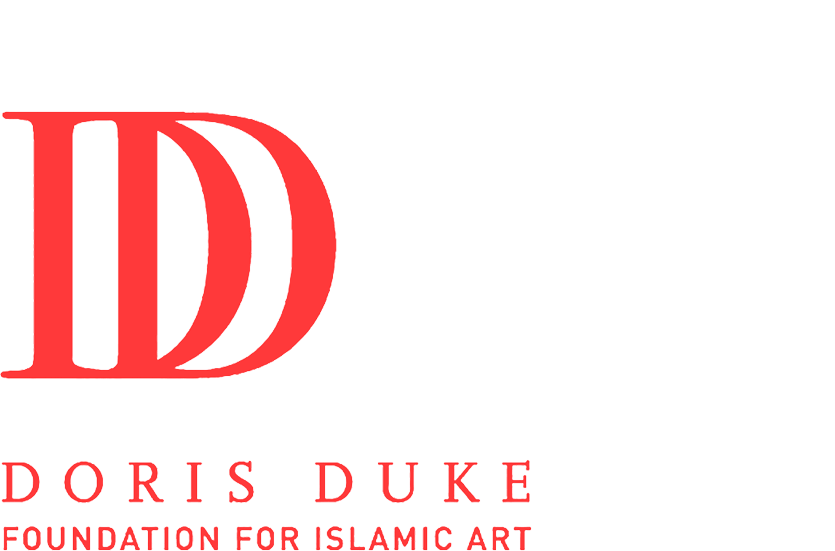 Doris Duke Islamic Foundation
Doris Duke Islamic Foundation Building Bridges Program
GoFA had a very successful partnership with the Building Bridges program to bring the Futurist Writers’ Room to their prospective grantees. The aim was to help their constituents advance their vision on how to improve the relationships of Muslim Americans and their neighbors through arts and culture.
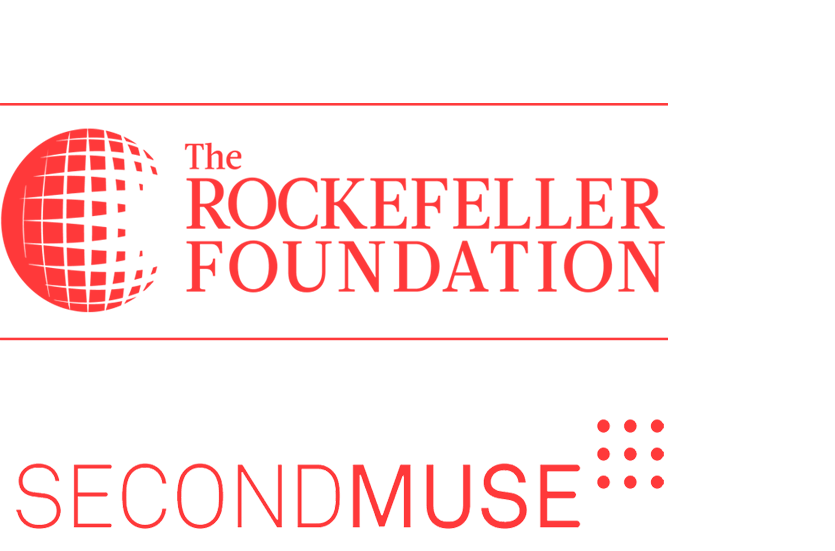 Rockefeller Foundation / SecondMuse
Rockefeller Foundation / SecondMuse
GoFA partnered with Second Muse in consortium with OpenIdeo to support the Rockefeller Foundation's Future of Food Systems Vision Prize accelerator. We were charged with designing learning programs for the grantees in the practices of Future Architecture so they could co-create the vision and prototypes for new food systems.
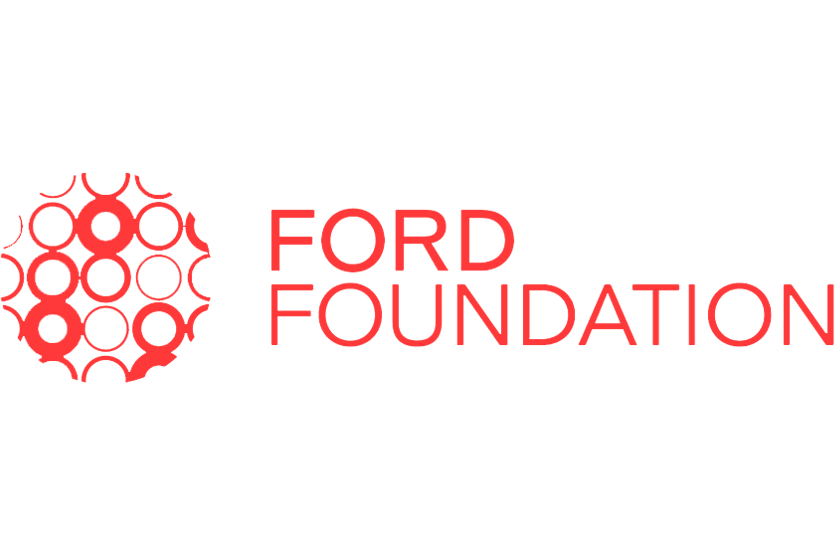 Ford Foundation
Ford Foundation
GoFA was awarded a multi-year grant of $750,000 from the Ford Foundation's Social Impact Bond grant cycle to support future architects in the work of transforming the field of journalism to center perspectives and voices of BIPOC, queer, and otherly-abled people; and to support them in the work of forging collaborations between artists and scientists, technologists, economists, and social sciences in every sector of human systems design.
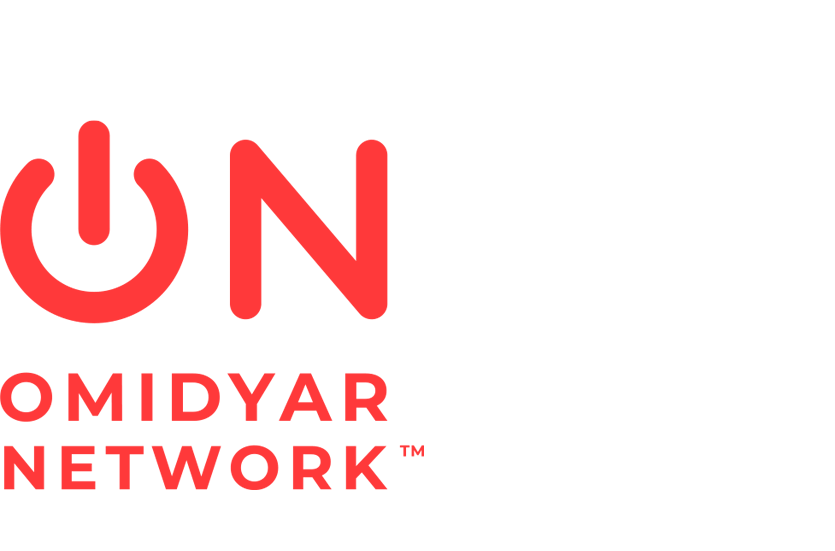 Omidyar Network
Omidyar Network
GoFA won a $200,000 grant from the Omidyar Network to continue the work of the Community of Practice and to produce a special Futurist Writers’ Room for the COVID Disrupted Class of young people with mentorship for the 2008 recession class of young people that might help them identify a clear path forward for their generation.
 Yoxi
Yoxi
GoFA received $100,000 from Yoxi to support our inaugural Shared Future Incubator. Additionally, Yoxi hosted and facilitated a roundtable to create guidelines for people interested in resourcing Shared Futures.
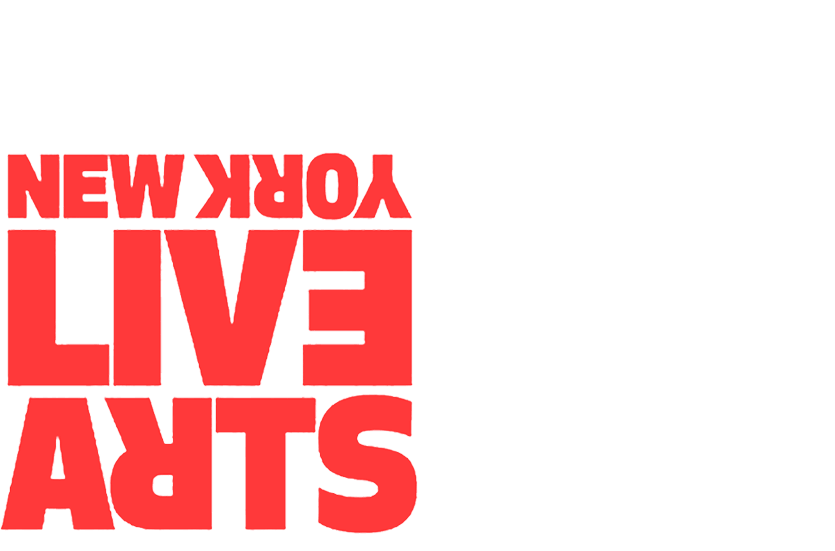 New York Live Arts
New York Live Arts
GoFA partnered with New York Live Arts in developing Collective Imagination in Deep Time, a program designed to articulate Black insight and foresight in collaboration with Octavia Butler through the reading of her body of work. Due to the pandemic, the originally envisioned live performance evolved into a WebXR project titled Traveling the Interstitium, which will premiere at the 2021 Sundance Film Festival.

Kokoro Circle
Kokoro is a Japanese word for which there is no literal English translation. It is the intersection of heart, mind, and spirit that might be considered a person’s essence, soul, or center.
Launched in the fall of 2020, our Kokoro Circle is meant to encourage an energetic connection among people who are invested in intentionally building a more beautiful world with shared values. Ideal candidates to join the Kokoro Circle are those who wish to support our field-building and capacity-building work without actively practicing future architecture themselves.
Participation in the Kokoro Circle begins at $1,000. Participants will receive special access to our flagship Shared Future Incubator, an invitation to join our Learning Programs, personal project updates from our senior leadership, curated conversations with future architects working in specific areas of interest, and more.
Financials
When our annual financial statement audit is completed, we will post the audited financial results here.
